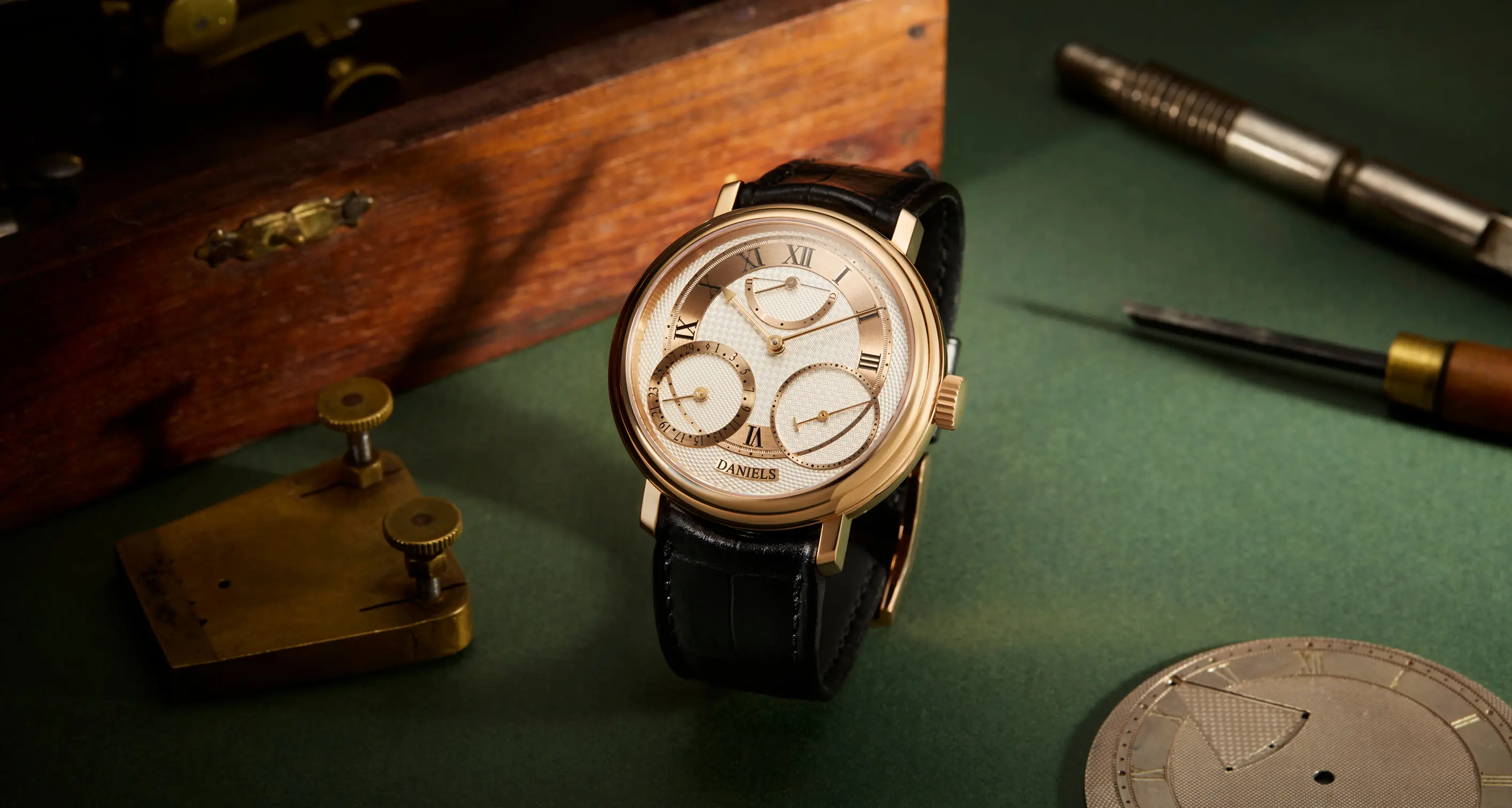With little interest in academia and following the advice of his father, Roger left school at the age of 16 and enrolled on a three-year course at the Manchester School of Horology. There he excelled and undertook his first wristwatch project, creating a skeletonised wristwatch from a Swiss ebauche which he housed in his first handmade case.
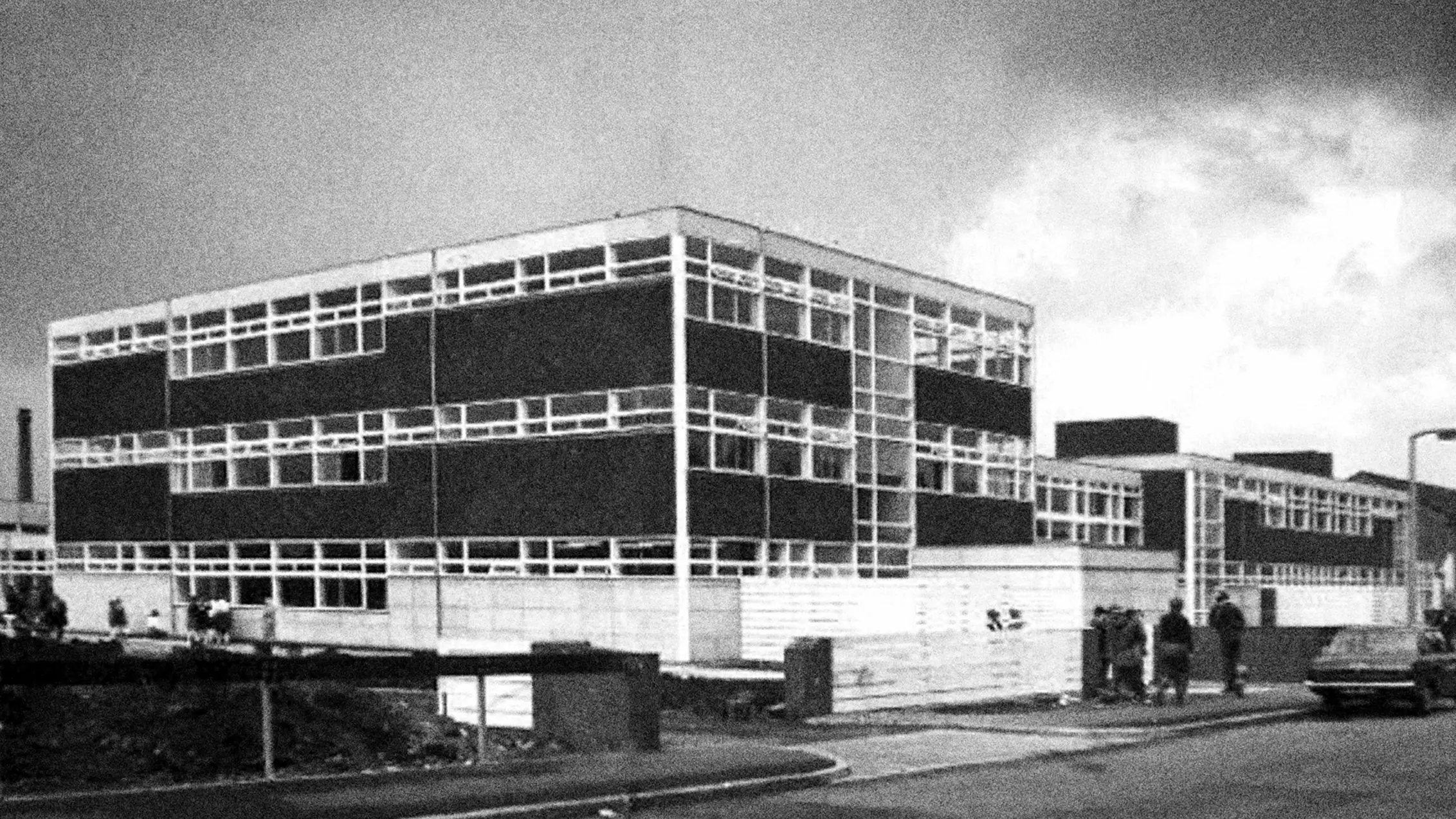
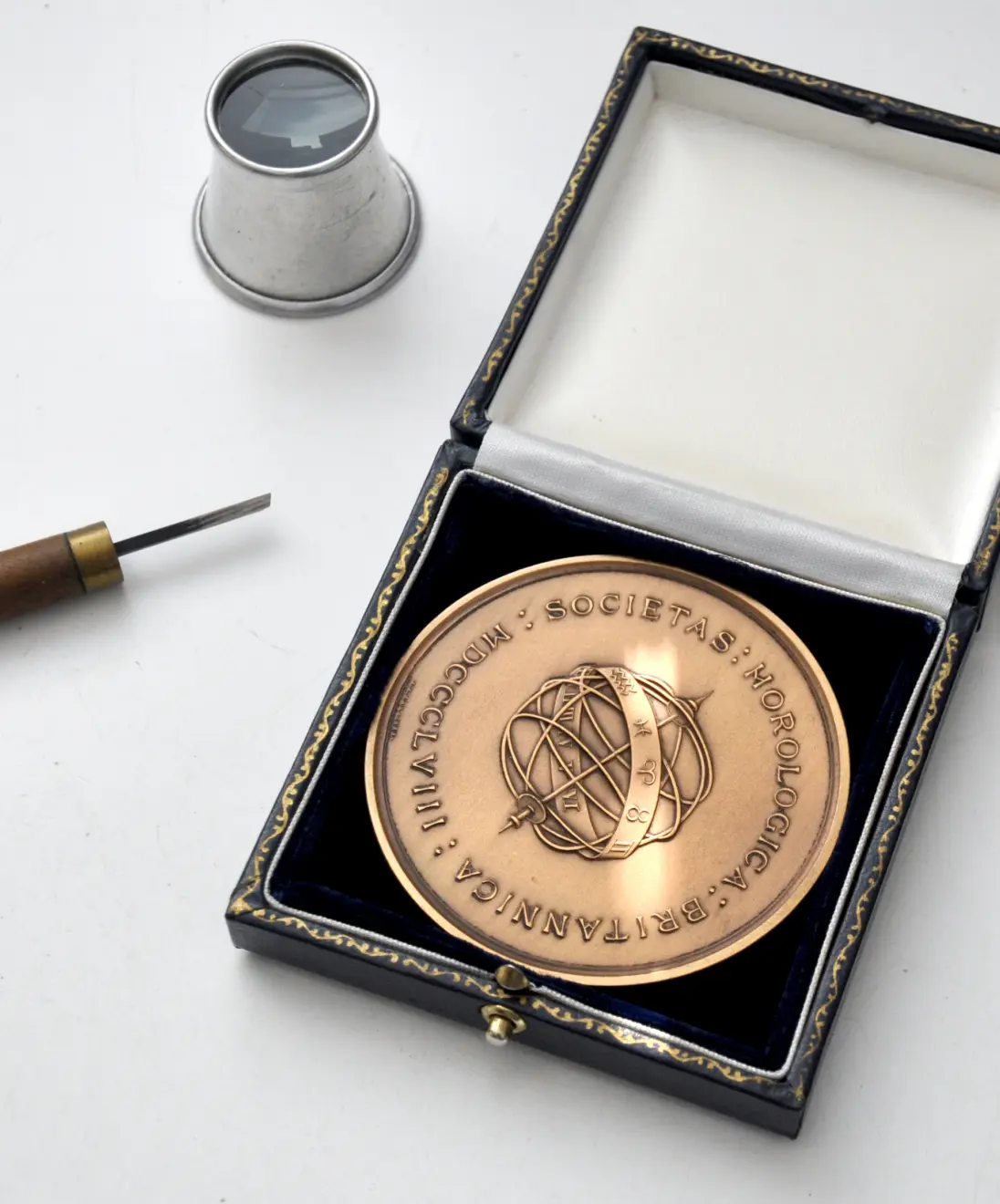
Roger was awarded the British Horological Institute's (BHI) Bronze Medal. This medal is presented annually to the top-performing student of the BHI.
Following his time at college, Roger went to work as a watch technician for Duval Ltd. Recognising that life as a repairer was perhaps not for him and inspired by a visit to his college by George Daniels, Roger set out to make his first pocket watch by hand. The watch, with a one-minute tourbillon, detent escapement and regulator style dial, was based
on that shown in Daniels’ book, ‘Watchmaking’. Eighteen months later, Roger took the completed watch to the Isle of Man for George to appraise. George rejected it, stating that the watch looked ‘too handmade’. Nevertheless, this was quite an achievement at the age of just 22.
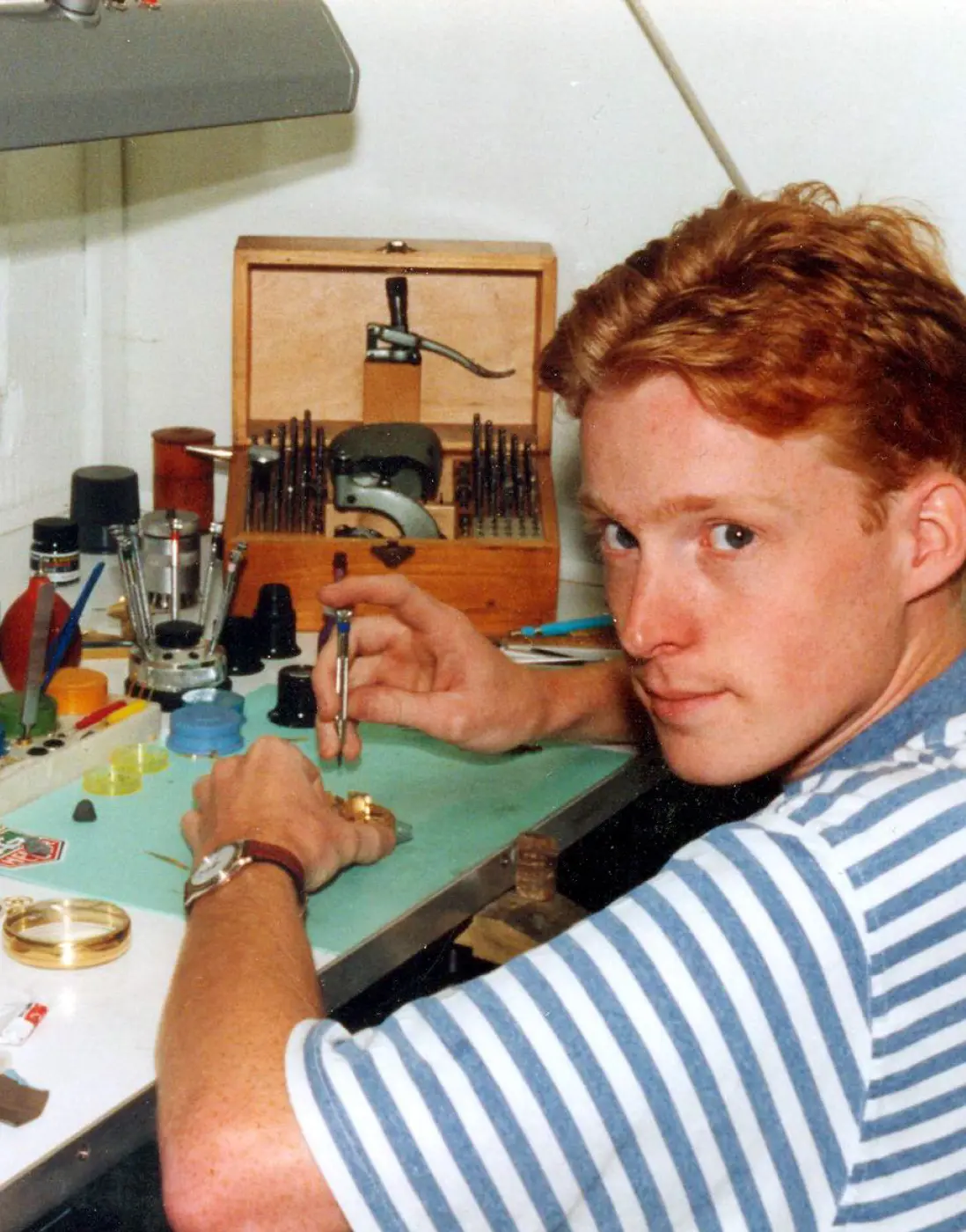
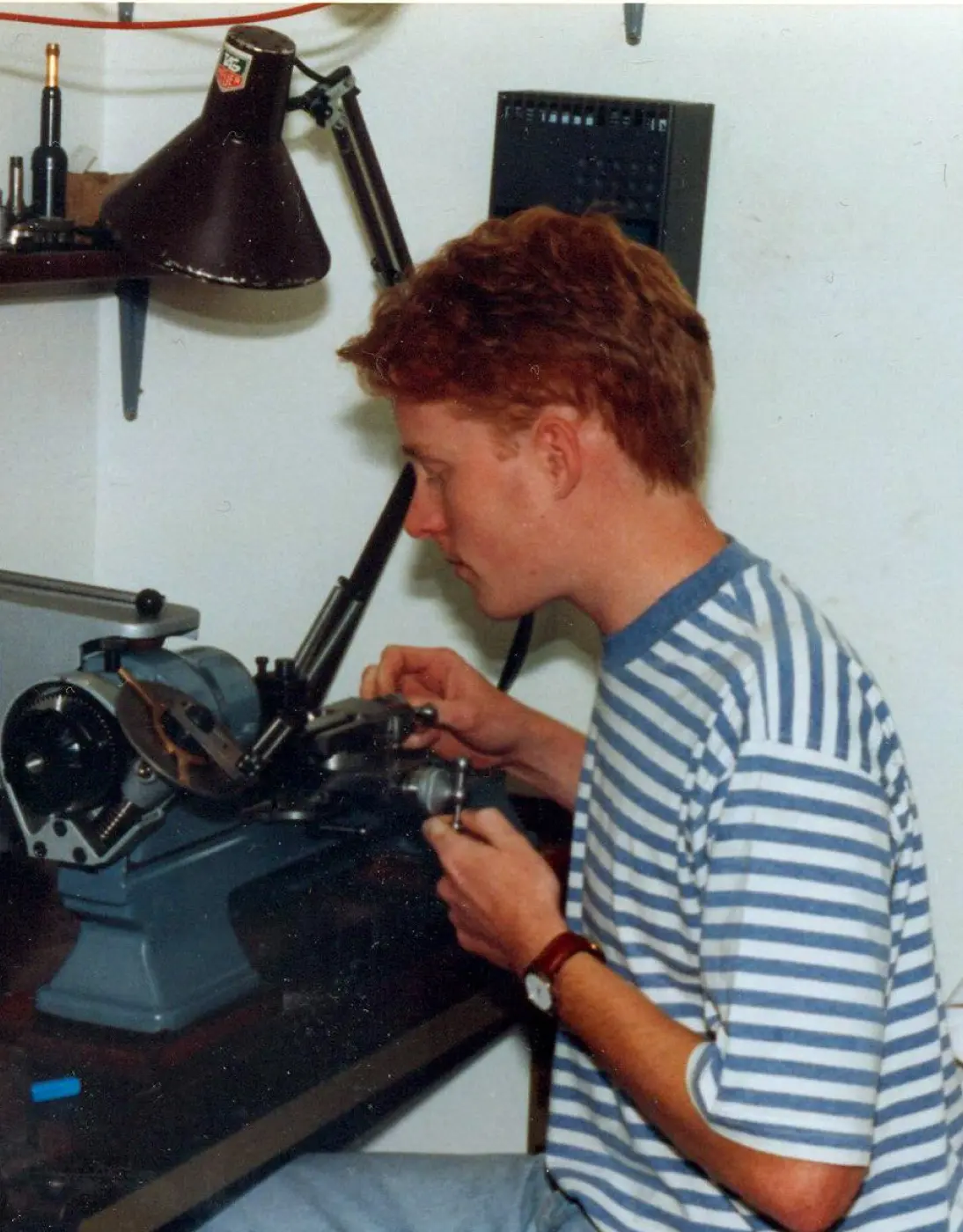
Spurred on by George’s rejection of his first pocket watch, Roger embarked on his second. This watch included a one-minute tourbillon with detent escapement and a four-year perpetual calendar complication. Made and remade four times as Roger’s understanding and skills grew, the project took five and a half years and was completed in early 1997. This time, upon inspection, George gave his approval and said, 'Congratulations! You're now a watchmaker.'

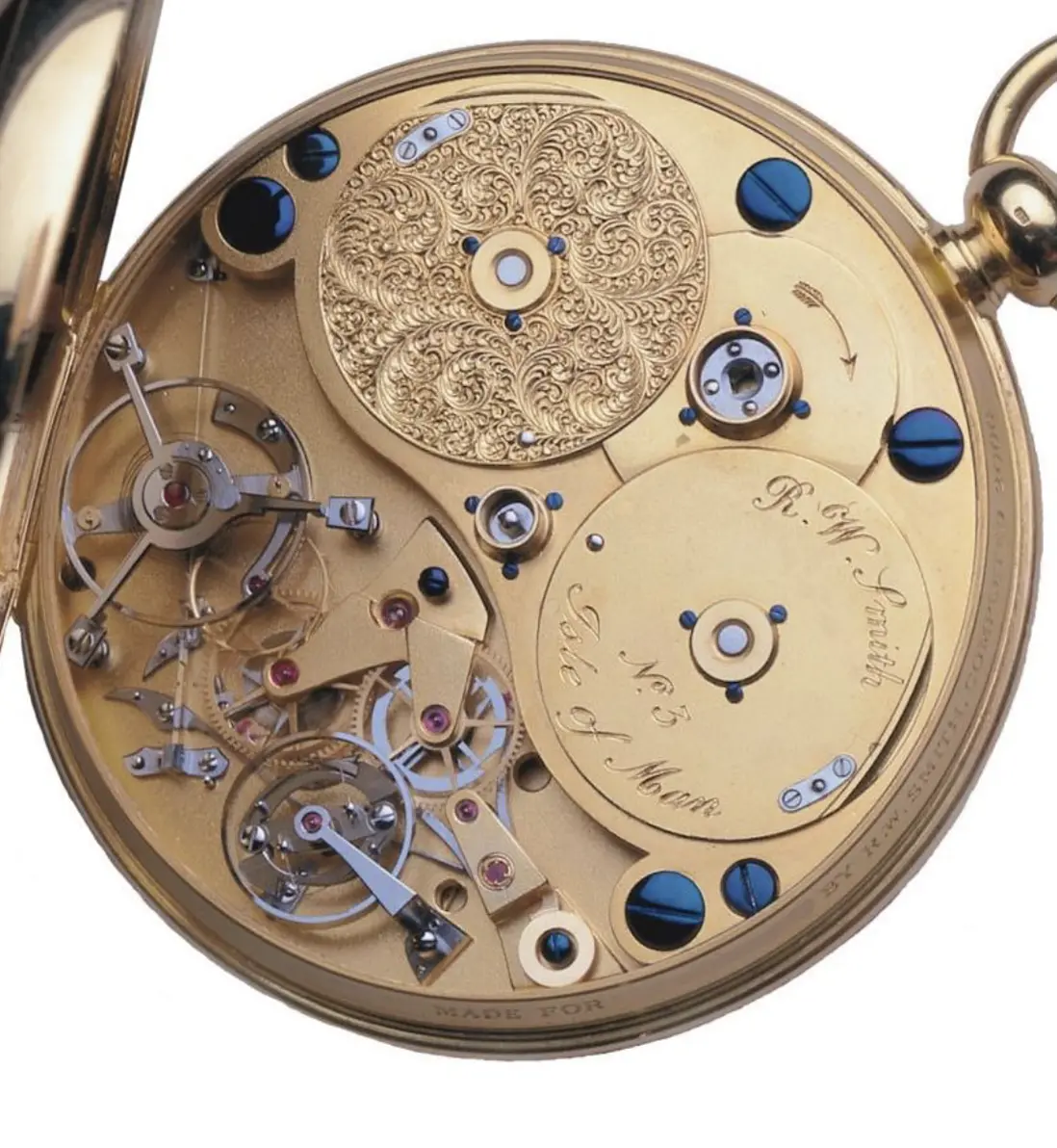
After the success of the second pocket watch, Roger received a commission from a British collector to make his third pocket watch. This piece had a Peto cross detent escapement, fifteen second remontoir and state of wind complication. The watch was built over a three-year period and completed in 2000, during his time working on the Millenium project in the Daniels workshop.
To celebrate Omega’s acceptance of the Daniels co-axial escapement, George invited Roger to collaborate on the Millennium wristwatch project, stating that he needed a ‘young pair of eyes’. The initial plan was to produce a limited run of just twelve pieces, with completion expected within one year.
However, as news of this unique partnership spread, demand for the watches led to the project being extended. In total, 48 yellow gold and 8 white gold pieces were made, with the last piece delivered in 2001. Roger considers this period, working with the great George Daniels, as one of his most formative. It was, he says, ‘the finest finishing school I could have wished for’.
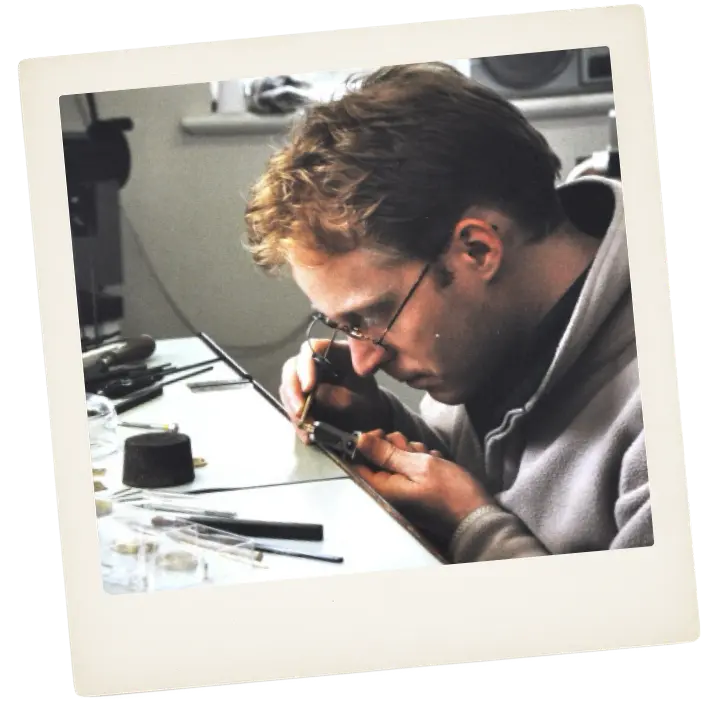
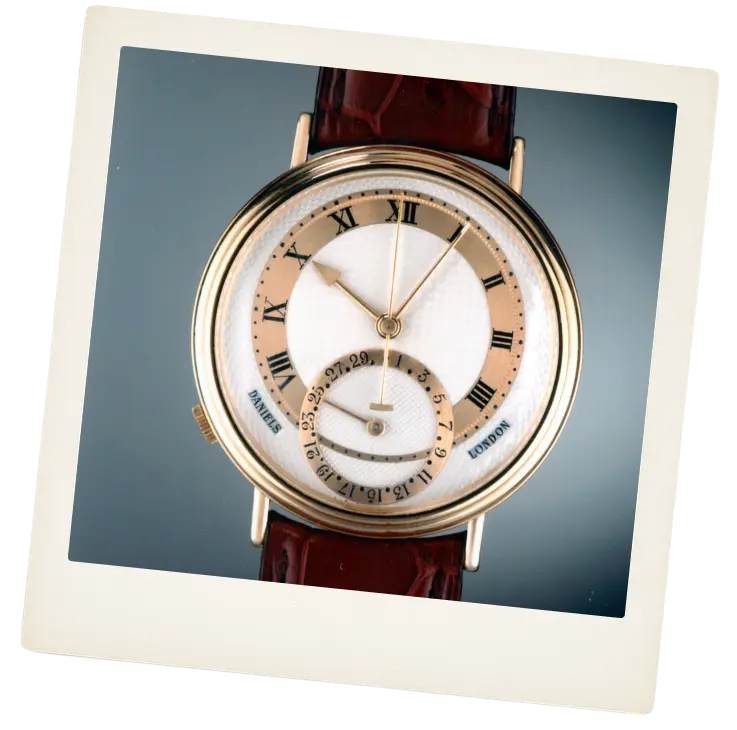

With the Millennium project drawing to a close, Roger began formulating ideas for a series of watches under his own name, and in 2001 Roger W. Smith Ltd was founded. The company began life in a converted bedroom within Roger’s small Manx cottage in Ballaugh, before growing to fill every room.
To soften the challenges of getting a new business established, George Daniels entrusted Roger to create two tourbillon wristwatches under the Daniels name. These watches were based upon a movement that George had started. Roger would go on to complete these over a four-year period. Owing to the difference in hour baton colour, the watches became known as 'The Blue' and 'The White'.
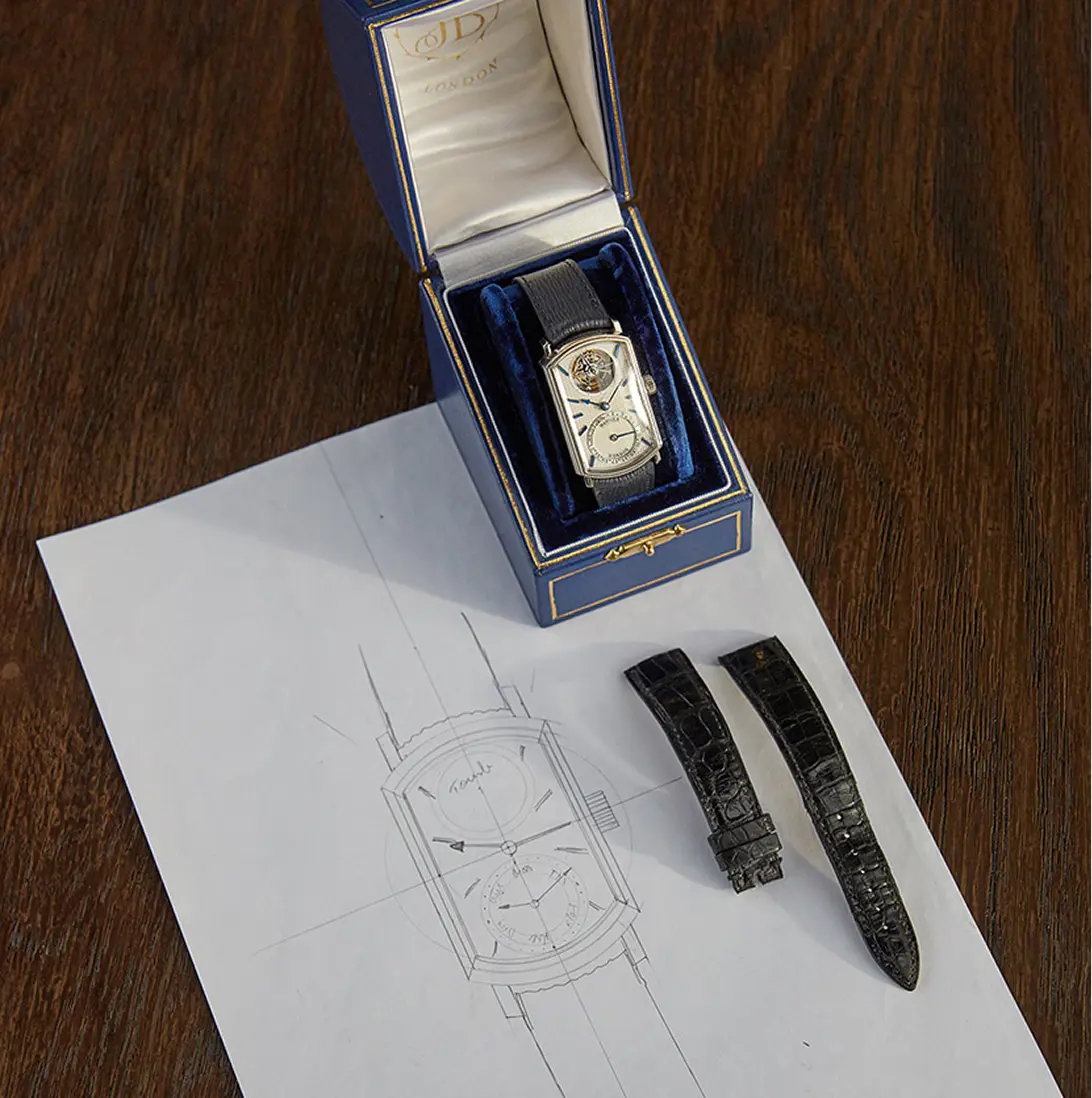
Roger recognised that the market had shifted, with collectors increasingly favouring wristwatches over pocket watches. In response, he began work on his first production wristwatch: the Series One.
A core ambition behind the project was to create a truly British watch, embracing the design aesthetic of English watchmaking, particularly its bold, three-dimensional movement architecture. The movement was based around an existing train of wheels, winding and handset mechanism and a lever escapement sourced from a Swiss ebauche. Roger built the movement plates, retrograde calendar mechanism, case, dial and hands.
Development began in 2001 and the first piece was delivered in April 2003.
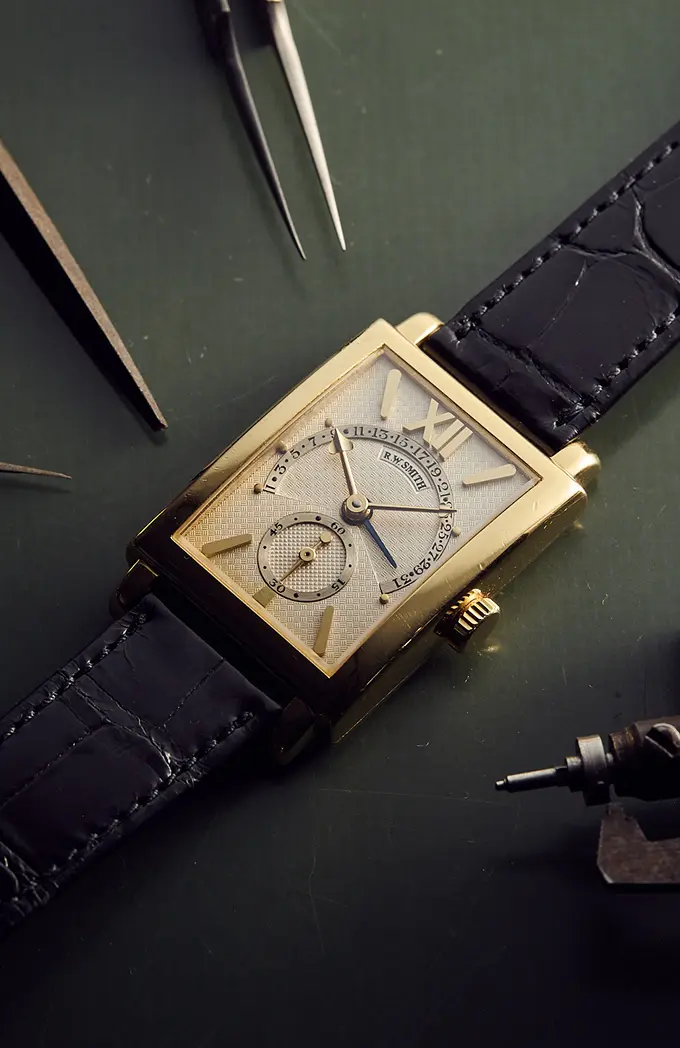
In total, nine Series One watches were made. The first eight were completed between 2003 and 2005, with a ninth made in 2016 at the special request of a collector. Three of the watches were produced in collaboration with the renowned jeweller Theo Fennell and carry his logo on the dial.
The original Series One, with its rectangular case and retrograde calendar, shares little with the Series One currently in production. Yet, it laid the foundation for Roger’s design aesthetic throughout his future work.
With aspirations to make more than one watch per year, Roger took on his first employee in 2003.
Upon completing The Blue and The White Daniels tourbillon wristwatches in 2004, Roger decided to apply everything he had learned from the collaboration to create his own series of tourbillon wristwatches. This resulted in four entirely unique pieces. Due to their varying degrees of complexity, the watches were completed out of sequence over an eleven-year period, with his then small, but growing team of watchmakers.
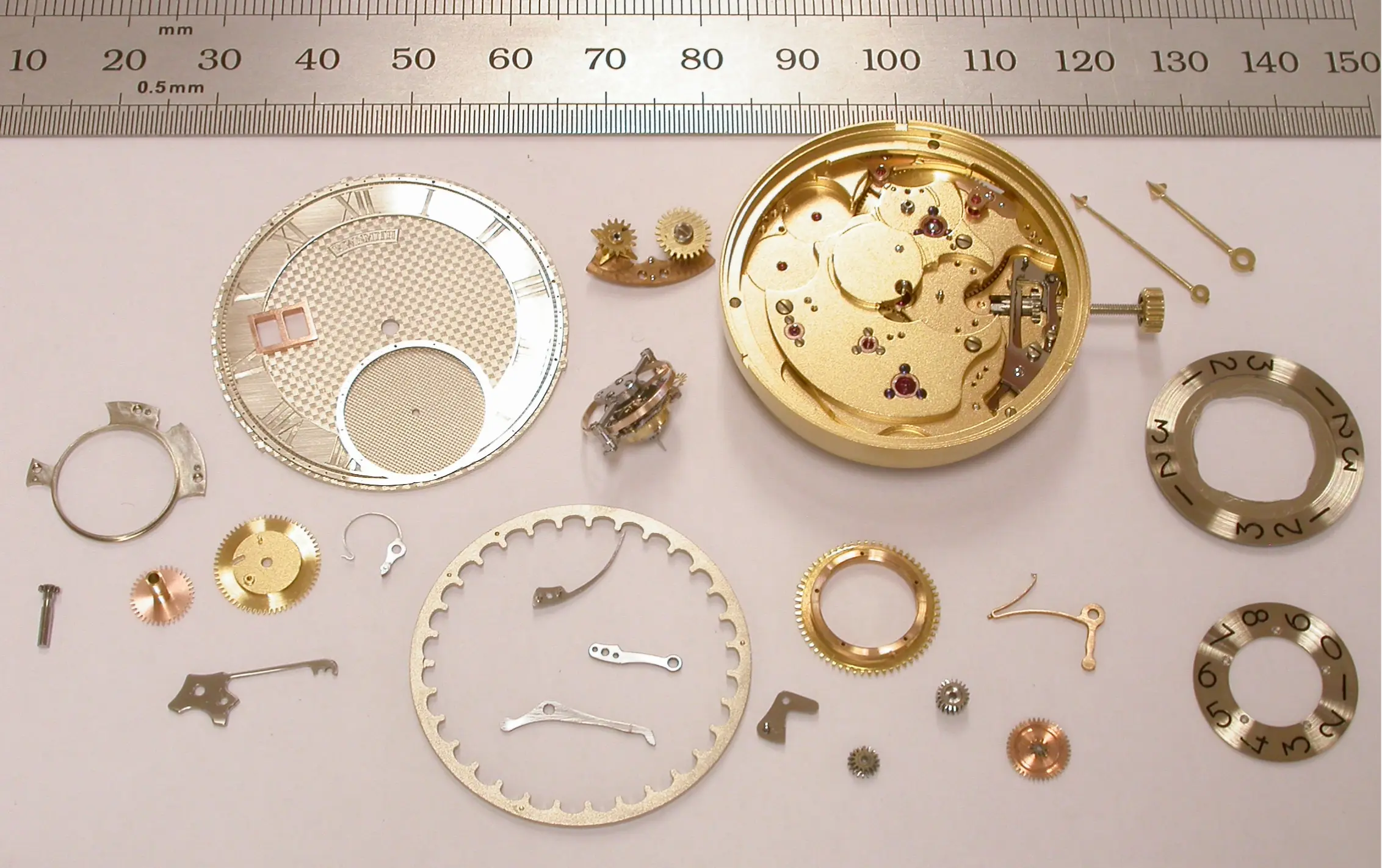
As the Series One project neared completion, Roger’s attention shifted to the future. Building on his initial success, he envisioned creating a new series, completely in-house. Unlike Series One, which used parts from a Swiss ebauche, this new approach would have raw materials entering one end of the workshop and a finished watch exiting the other*. The Series Two, with its power reserve complication, was the first production movement to have been designed using George’s original form of co-axial escapement (two wheels with pinion); a design later adopted by Omega, as they moved away from George Daniels’ slim-line version.
The Series Two became a cornerstone of Roger’s workshop, with 60 pieces being made between 2007 and 2019. He briefly explored the Edition range, creating standardised watches with different case materials. This phase revealed that customers preferred bespoke wristwatches tailored to their tastes. Owing to the limited number of these early Edition pieces, they are now a much sought after part of Roger’s legacy.
* Except for the balance spring, mainspring, jewels, sapphire crystals, seals and straps, which are sourced from specialist manufacturers.

The first to be completed of the Tourbillon collection, the No.3 wristwatch featured a one-minute tourbillon, fitted with a co-axial escapement and Roger’s resilient, instantaneous date complication.
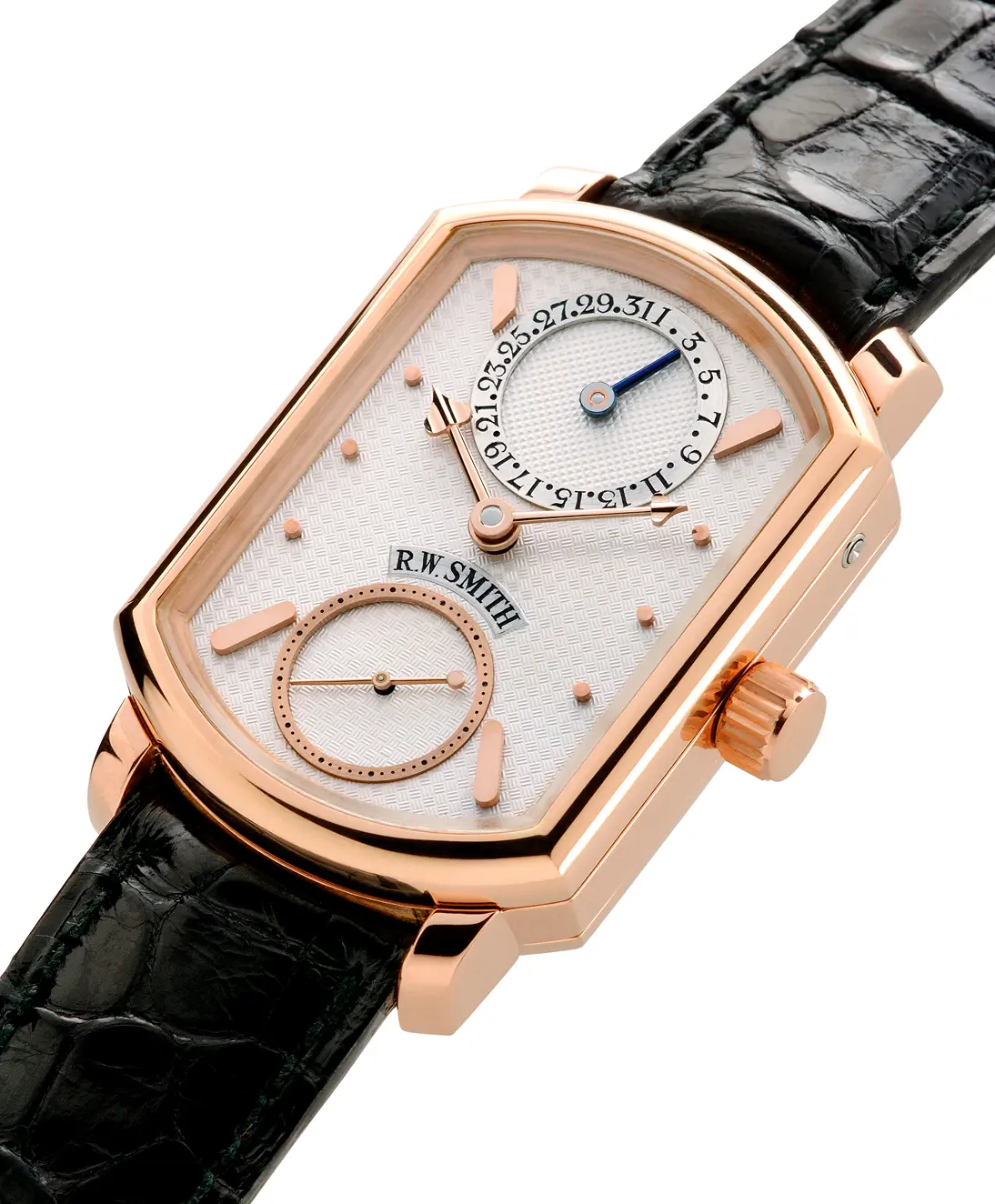
Discussions for The Daniels Anniversary project began, with the goal of celebrating 35 years since George Daniels invented the co-axial escapement. Initially envisioned as a second Millennium-type project featuring an Omega co-axial movement, Roger convinced George to allow him to design an entirely new Daniels calibre, incorporating Roger’s single-wheel co-axial escapement.
Inspired by George’s 1994 chronograph, Roger developed the prototype, and the first piece was delivered to George before his passing in 2011. Roger went on to produce 35 pieces in yellow gold, 4 in platinum, 4 in white gold and 4 in red gold, with the last being delivered in 2025. The George Daniels Educational Trust has benefitted from a share of the proceeds and this has helped to support its important work: https://www.danielstrust.org/
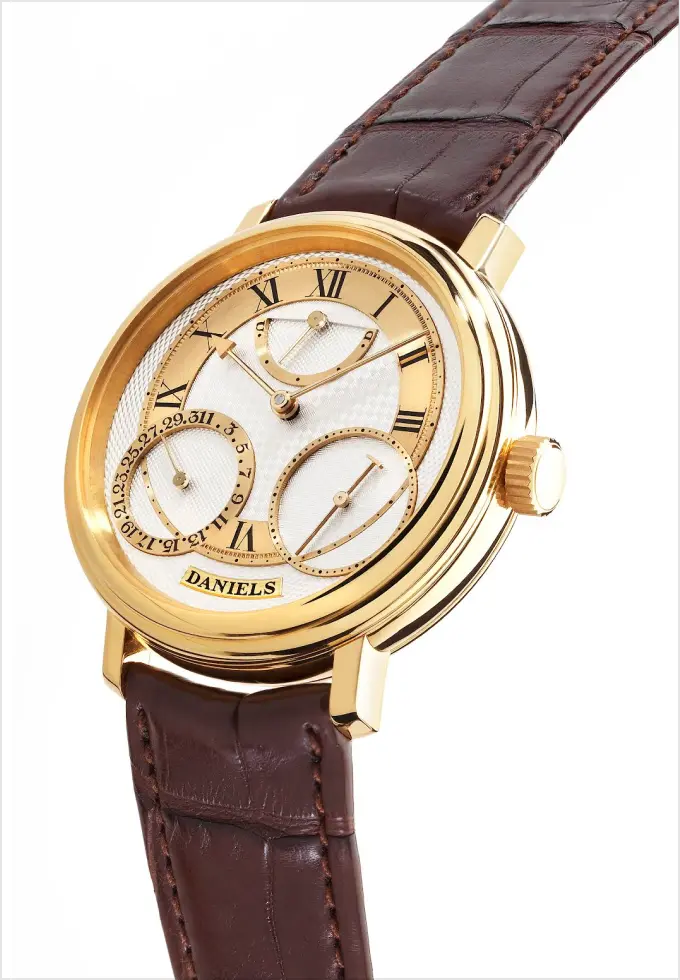
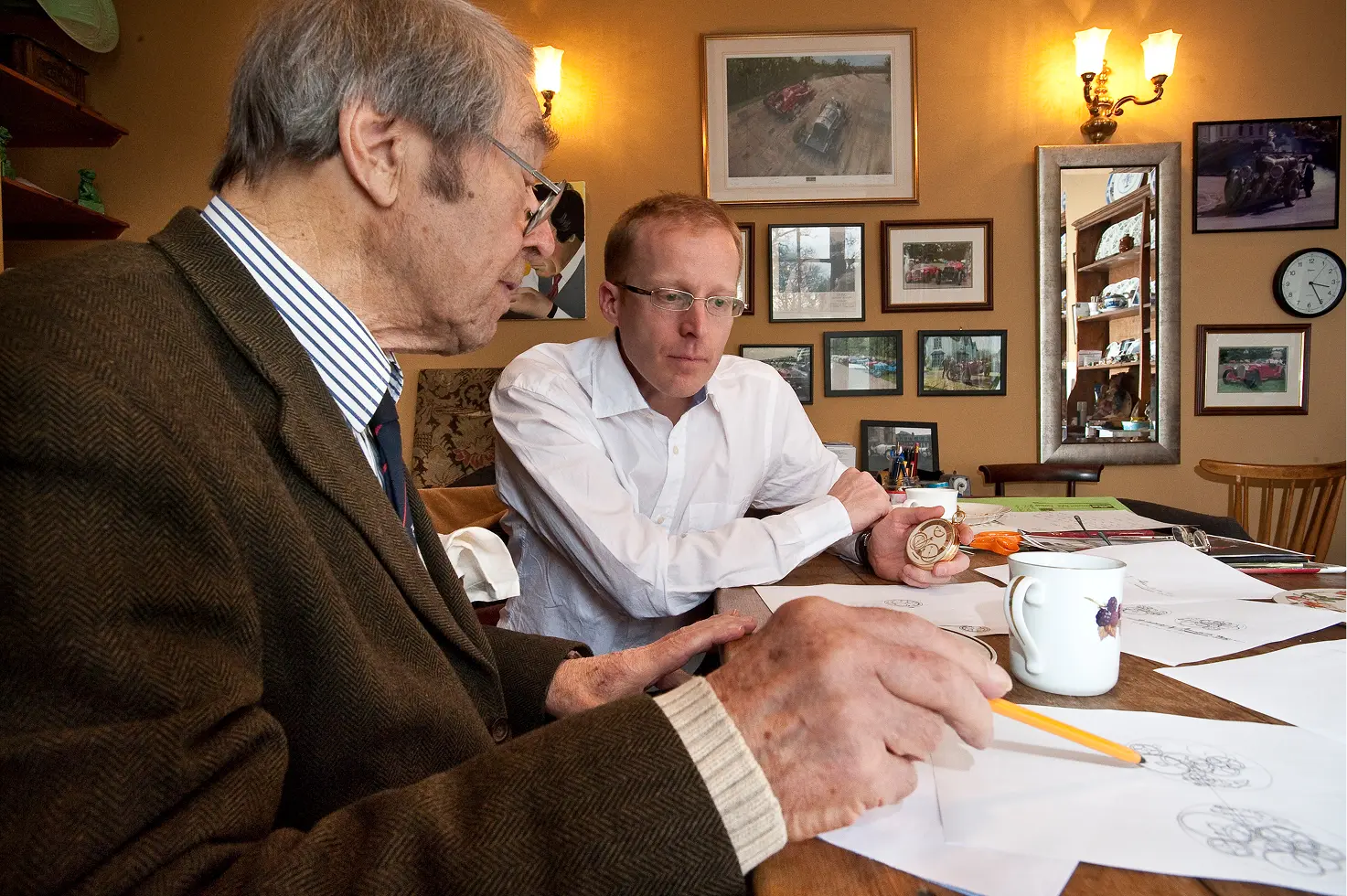

Marking a new decade, the original 38mm case was phased out in favour of a newly styled 40mm case.
In 2010, Roger introduced his first Open Dial Series Two, designed to showcase the under-dial work that had previously been visible only to the watchmaker. This allowed collectors to appreciate more of the movement’s intricacies, including frosted and gilded plates, black-polished and bevelled steel components and the meticulous attention to detail that defines Roger’s craftsmanship.
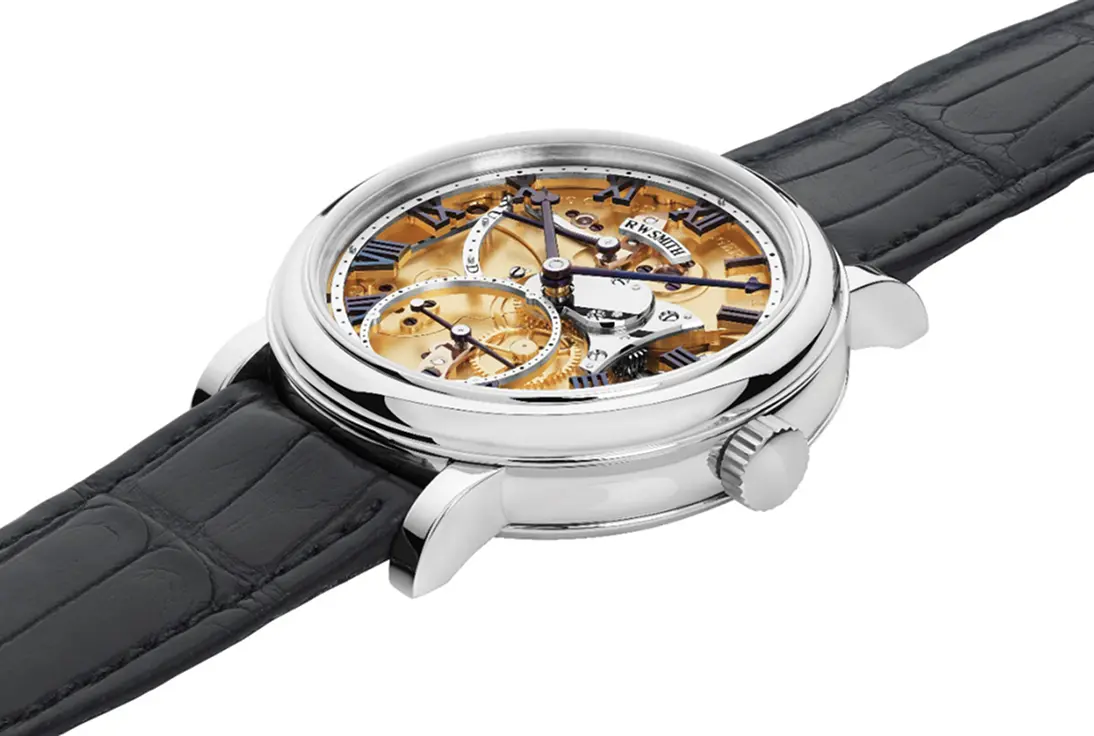
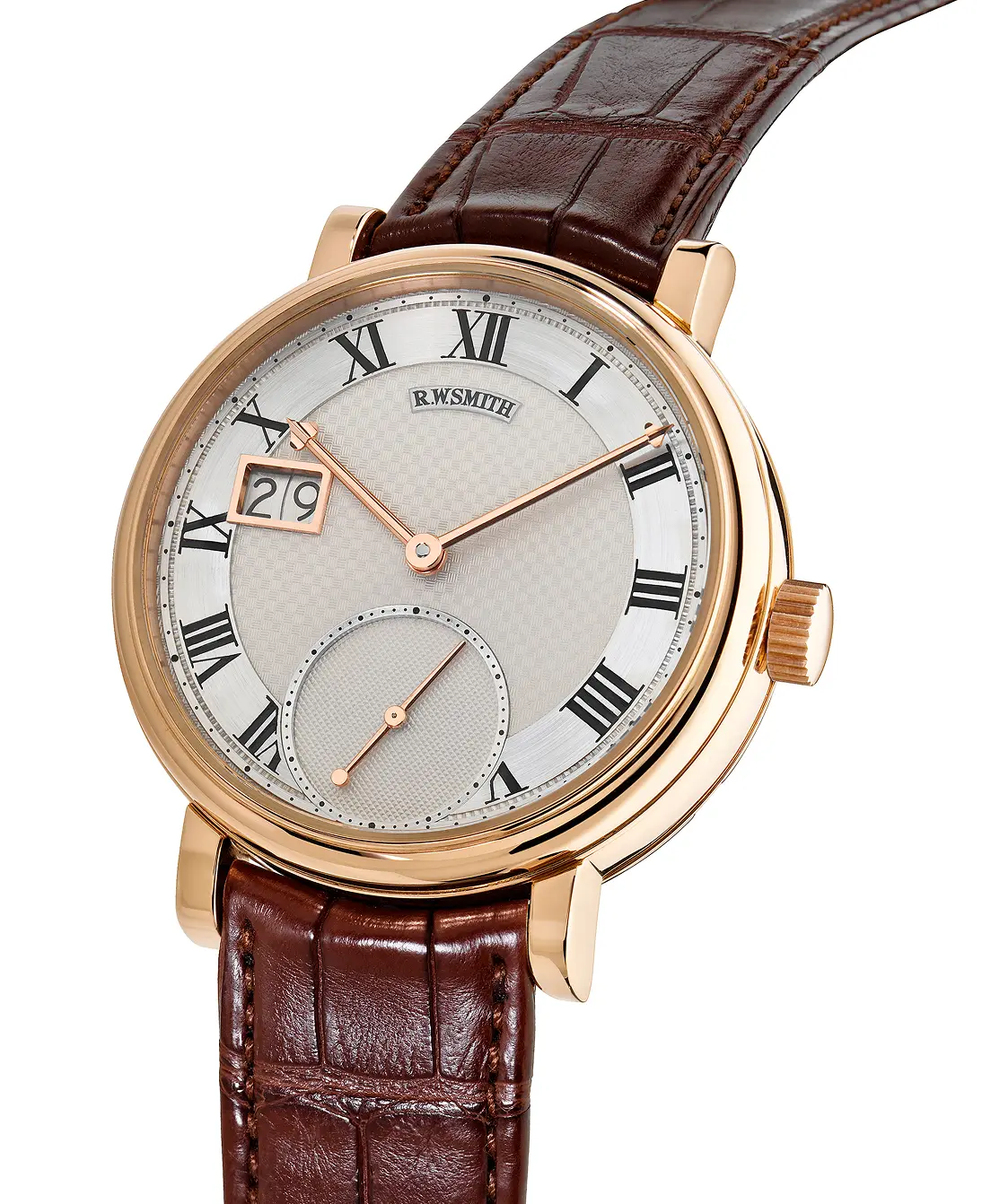
The second to be completed of the Tourbillon collection, the No.1 wristwatch featured a one-minute flying tourbillon fitted with a co-axial escapement and a Grand Date complication.
Roger designed the single wheel version of the co-axial escapement by transferring the teeth of the upper impulse wheel onto the lower wheel. This improvement ensured concentricity and fixed angular orientation of the two sets of teeth. This development improved the accuracy and performance of the escapement, thereby allowing for a weaker mainspring, leading to improved efficiency and extended service intervals.
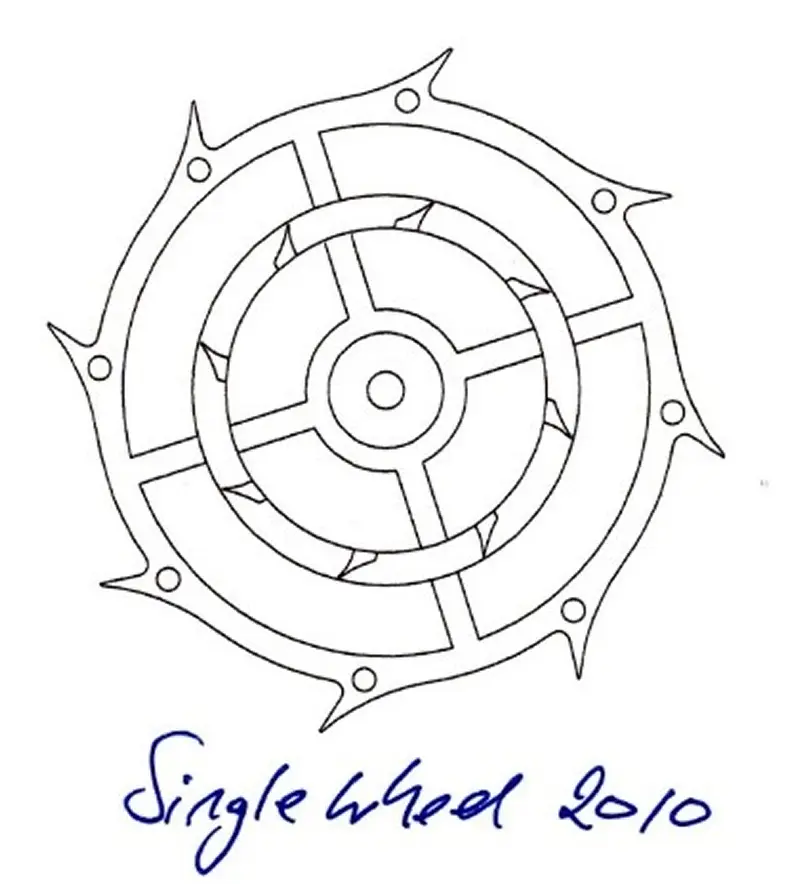
More details can be found in the YouTube video: London City University presentation from 2019. https://youtu.be/cAbJLCfVKJc?si=REXvXr-GUi_q5zhR
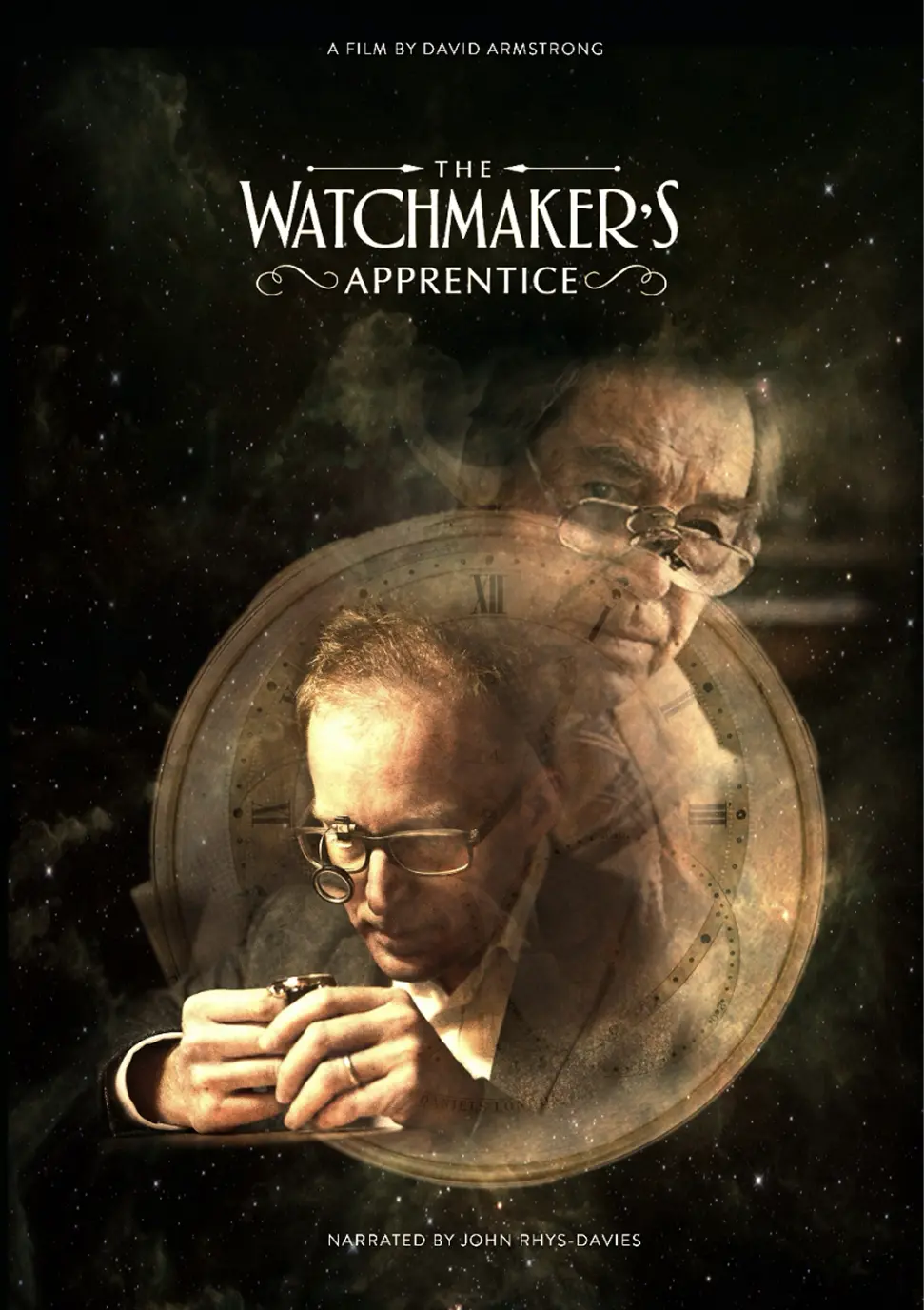
Roger was approached by DAM Productions, who were planning a series of short television profiles about interesting people on the Isle of Man. After interviewing Roger and George, they discovered that there was a far bigger story to be told. This led to the creation of The Watchmaker’s Apprentice, a film which covers the unique relationship between Roger and his mentor, George Daniels.
The film can be found at https://www.imdb.com/title/tt2958390/
Awarded by the British Horological Institute (BHI) in recognition of Roger’s dedication to, and successful continuation of, the finest traditions of English watchmaking.

Following George’s passing in 2011, the contents of the Daniels workshop collection were bequeathed to Roger, to carry on the Daniels legacy. The George Daniels Educational Trust was also formed at this time.

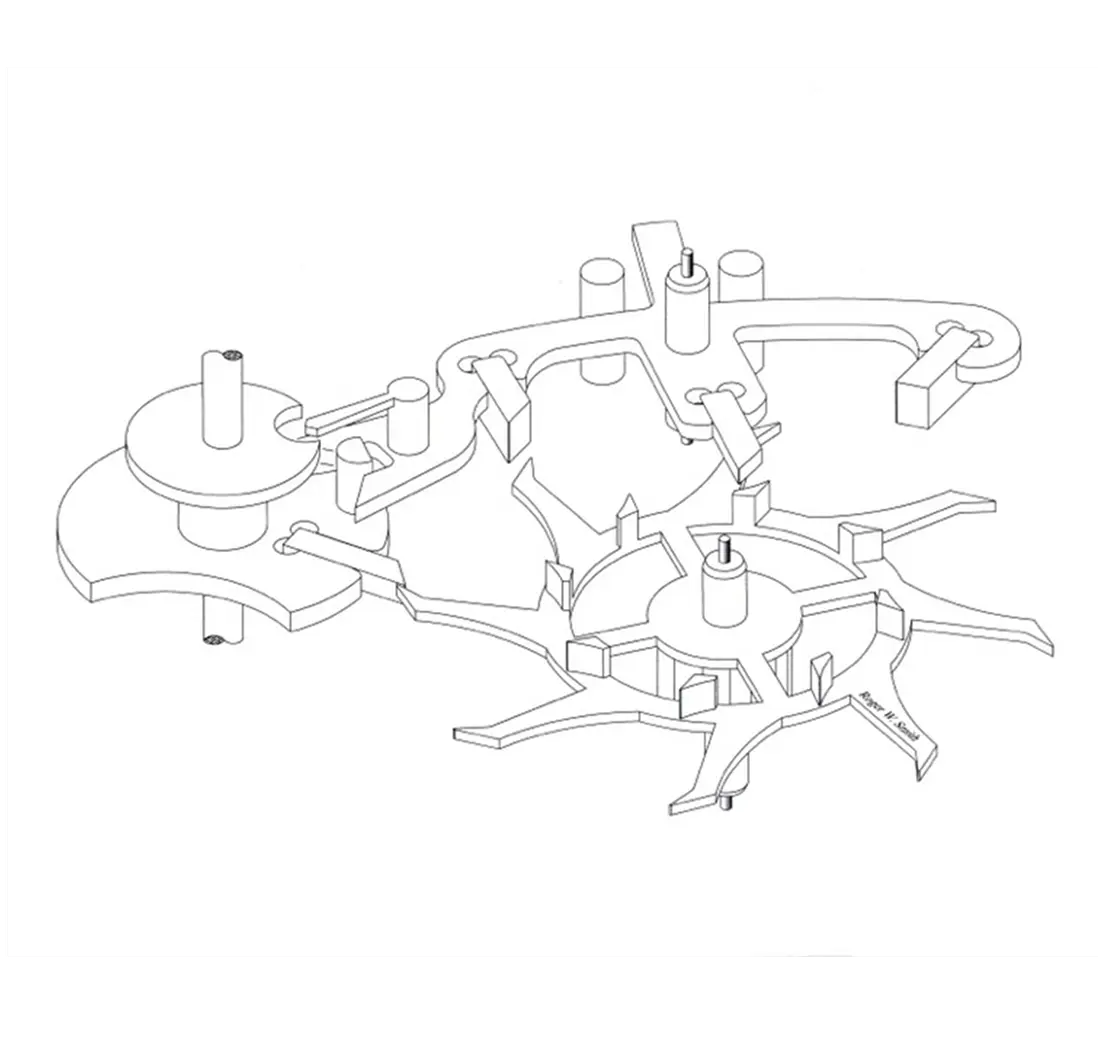
Roger further developed the single wheel co-axial escapement by reducing the weight of the escape wheel by 23%. The results were transformative, allowing a further reduction in mainspring strength. By reducing the force through the movement, Roger was able to increase the efficiency, reduce the wear and therefore extend the service intervals of his watches.
Roger worked with an esteemed collector to conceive and design a unique pair of watches with mirrored retrograde calendar complications.The design and development work of these key pieces led to the birth of the Series Three.
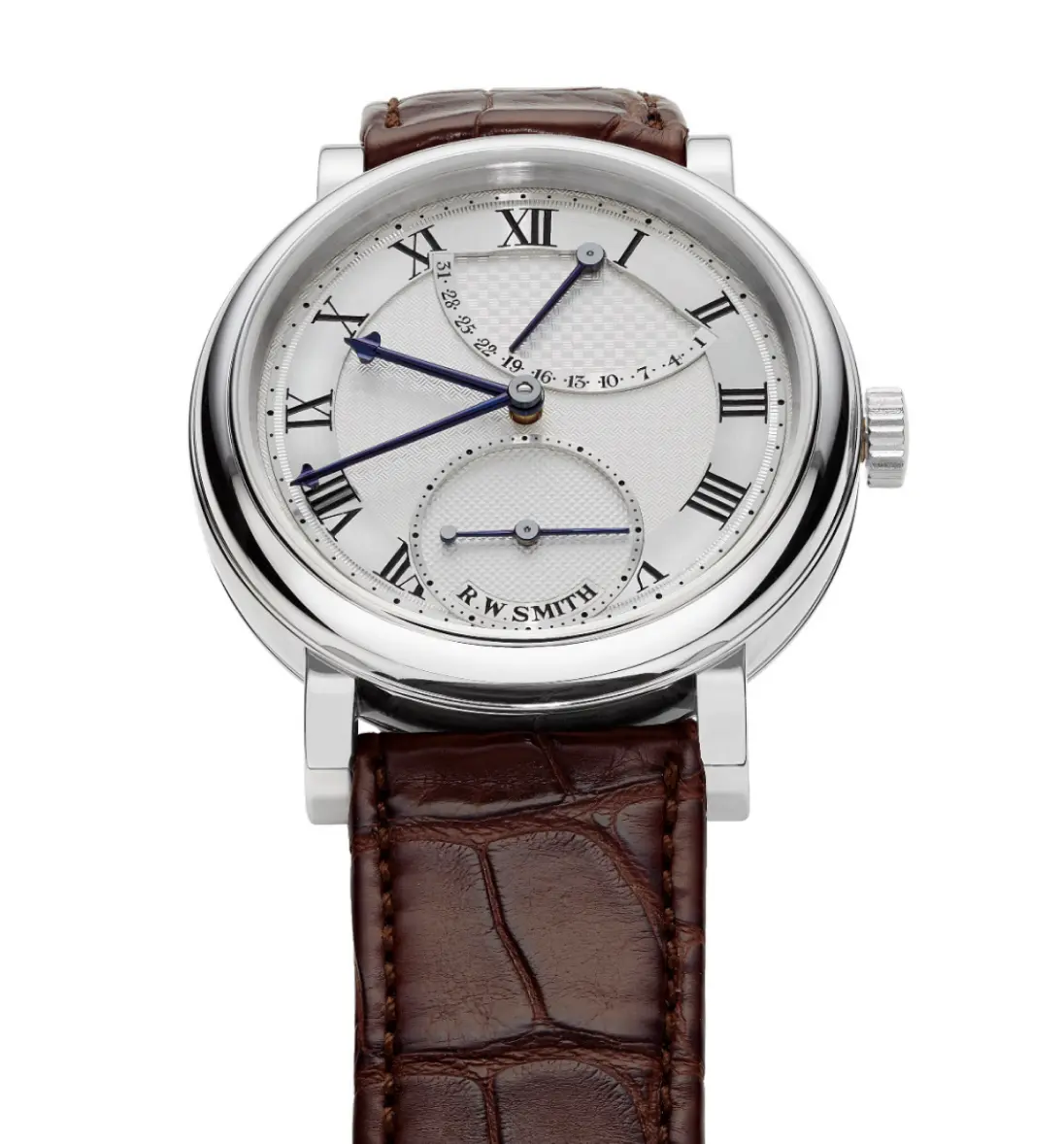

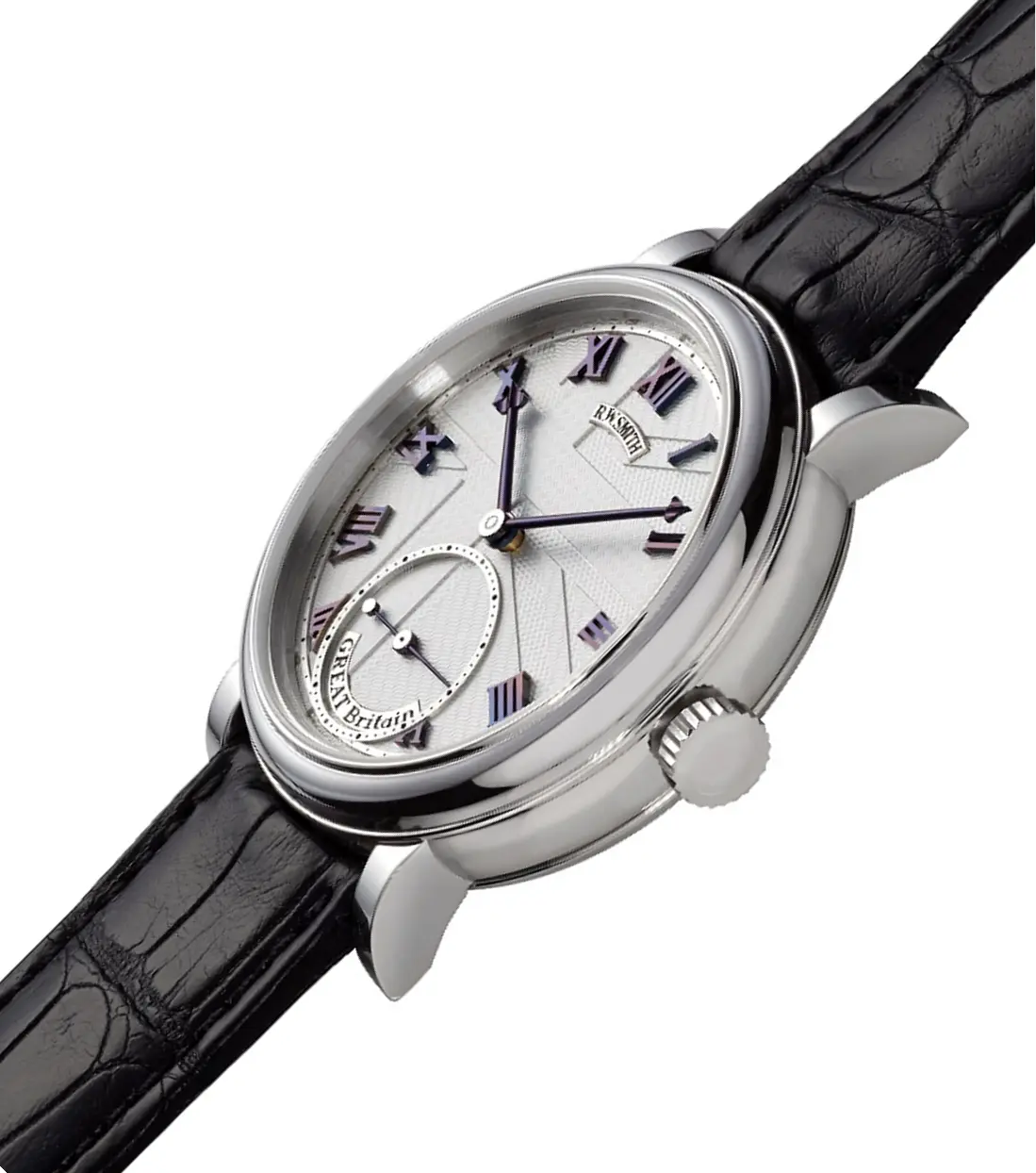
In 2013, Roger’s importance to the British luxury and creative sectors was recognised when he was appointed by the Prime Minister’s Office to be an Ambassador for the UK Government’s ‘GREAT’ campaign. To celebrate Britain as a uniquely creative and inventive country, Roger designed and created a one-off piece ‘The GREAT Britain’. Its unique dial, formed of 30 parts, features the Union Jack flag in relief. This watch has been showcased internationally as part of the GREAT campaign.
The third to be completed of the Tourbillon collection. The No.4 features a one-minute tourbillon fitted with a co-axial escapement and a date complication with a power reserve dial.
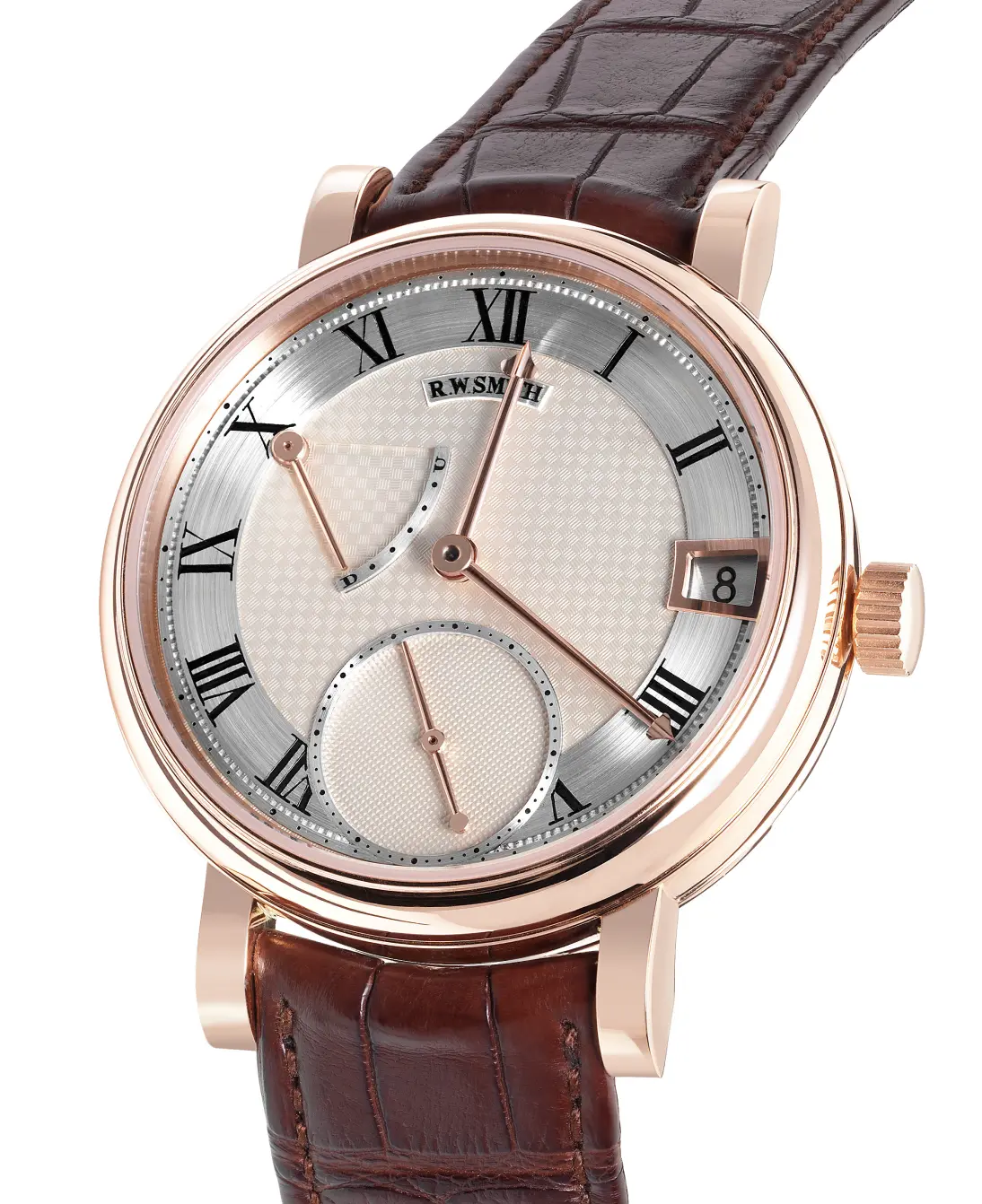
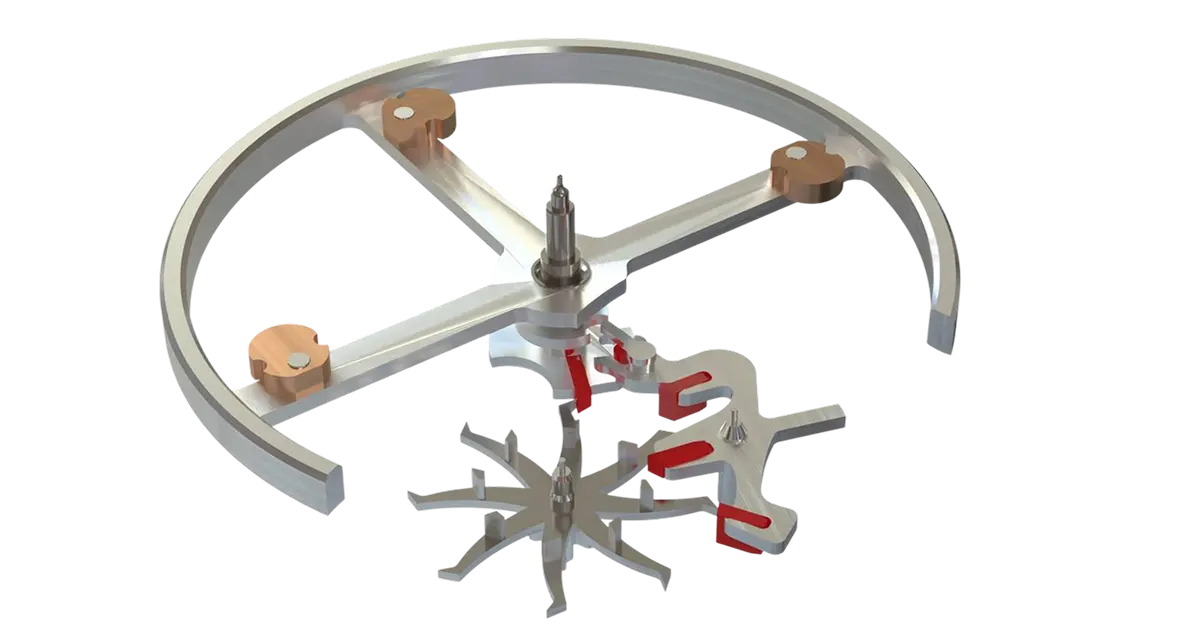
For the third version of the single wheel co-axial escapement, Roger focussed on reducing the diameter of the escape wheel from 6mm to 4.5mm. He also lightened several of the other components. These improvements once again allowed the strength of the mainspring to be reduced.
The introduction of the third version of Roger’s single wheel co-axial escapement, with its 4.5mm escape wheel, required a redesign of the Series Two movement. This new movement became known as the Mark 2. By now an established calibre, with 10 years of development, the Series Two movement became the basis of Roger’s soon to be expanded range.
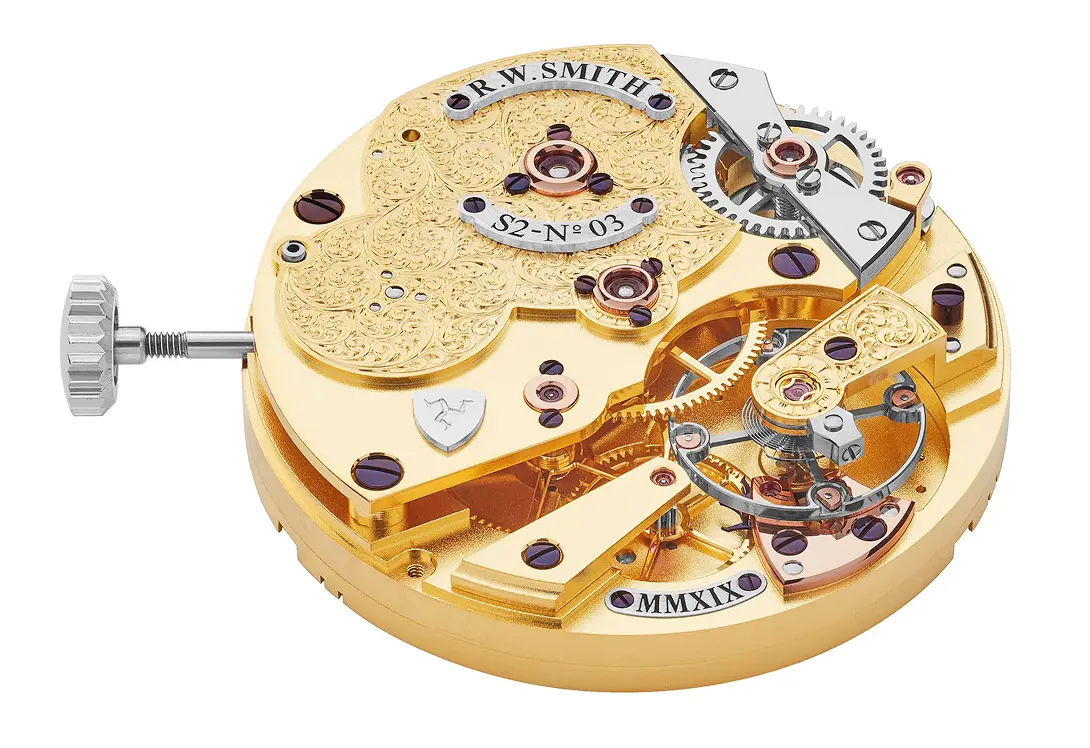
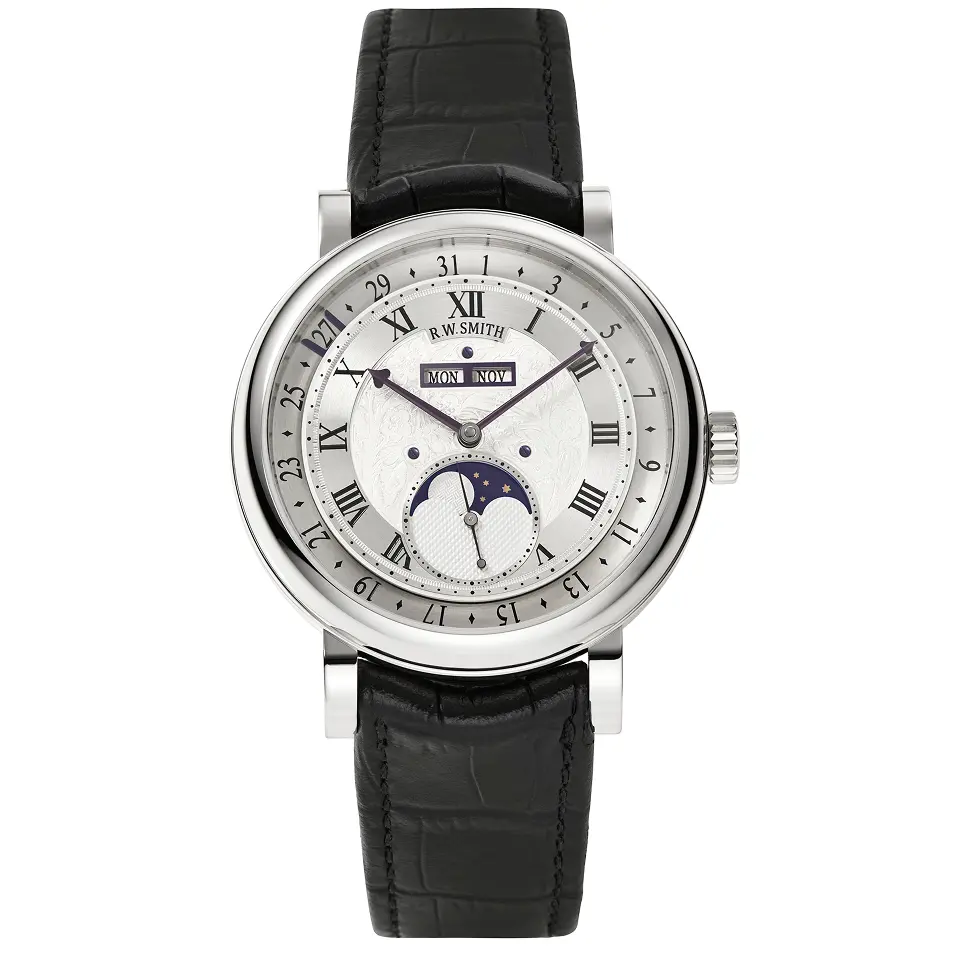
While designing his Series 4, Roger encountered an issue with the hand of the traditional triple calendar display, which sometimes obscures key information for days at a time. Legibility of the dial being one of Roger’s most highly held values, he set out to address the problem, which he resolved through his travelling date aperture concept.
A new range of watches, comprising the Series One, Two, Three and Four was conceived in 2014, with prototypes launched at Salon QP in 2015.

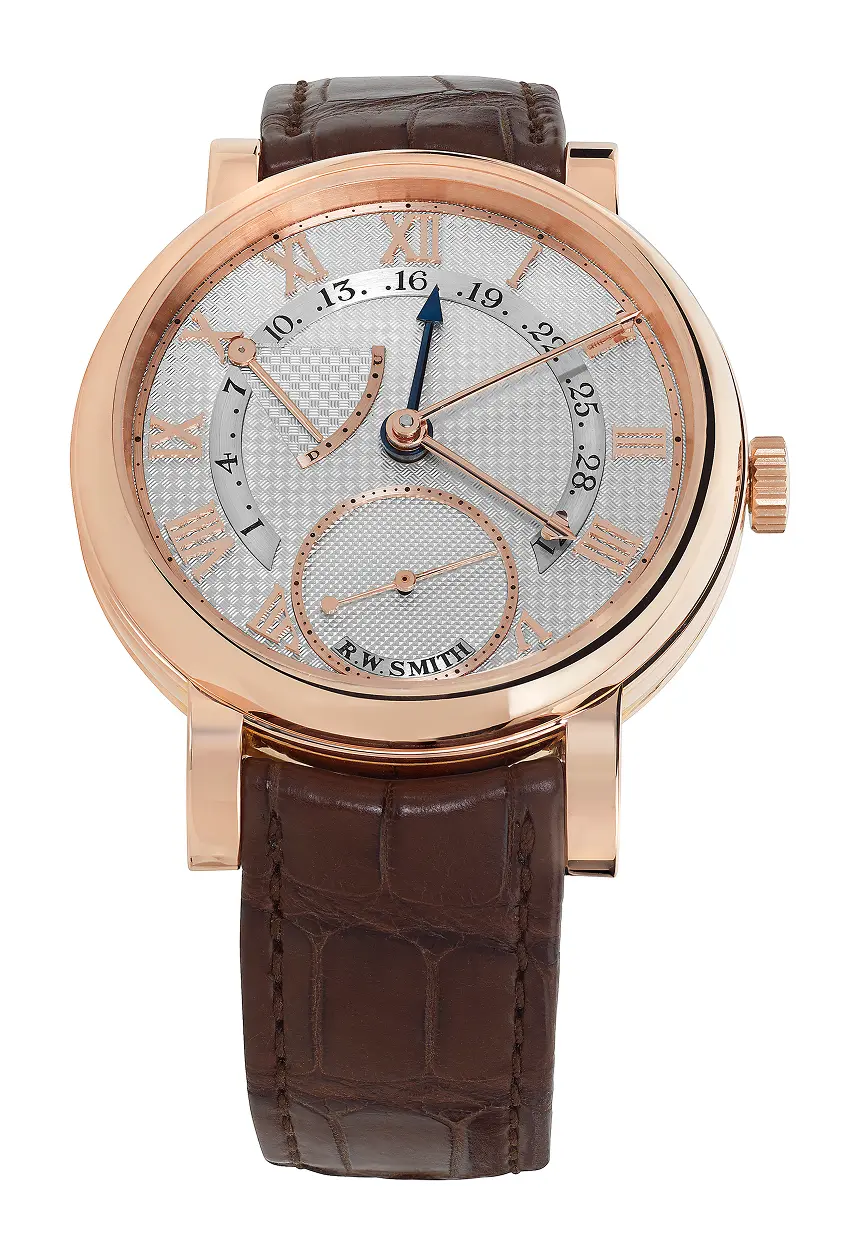
The fourth to be completed of the Tourbillon collection, the No.2 features a one-minute tourbillon fitted with a co-axial escapement and a retrograde date complication with a power reserve dial.
A new Series One wristwatch was introduced in 2018. This time-only model was inspired by The GREAT Britain.
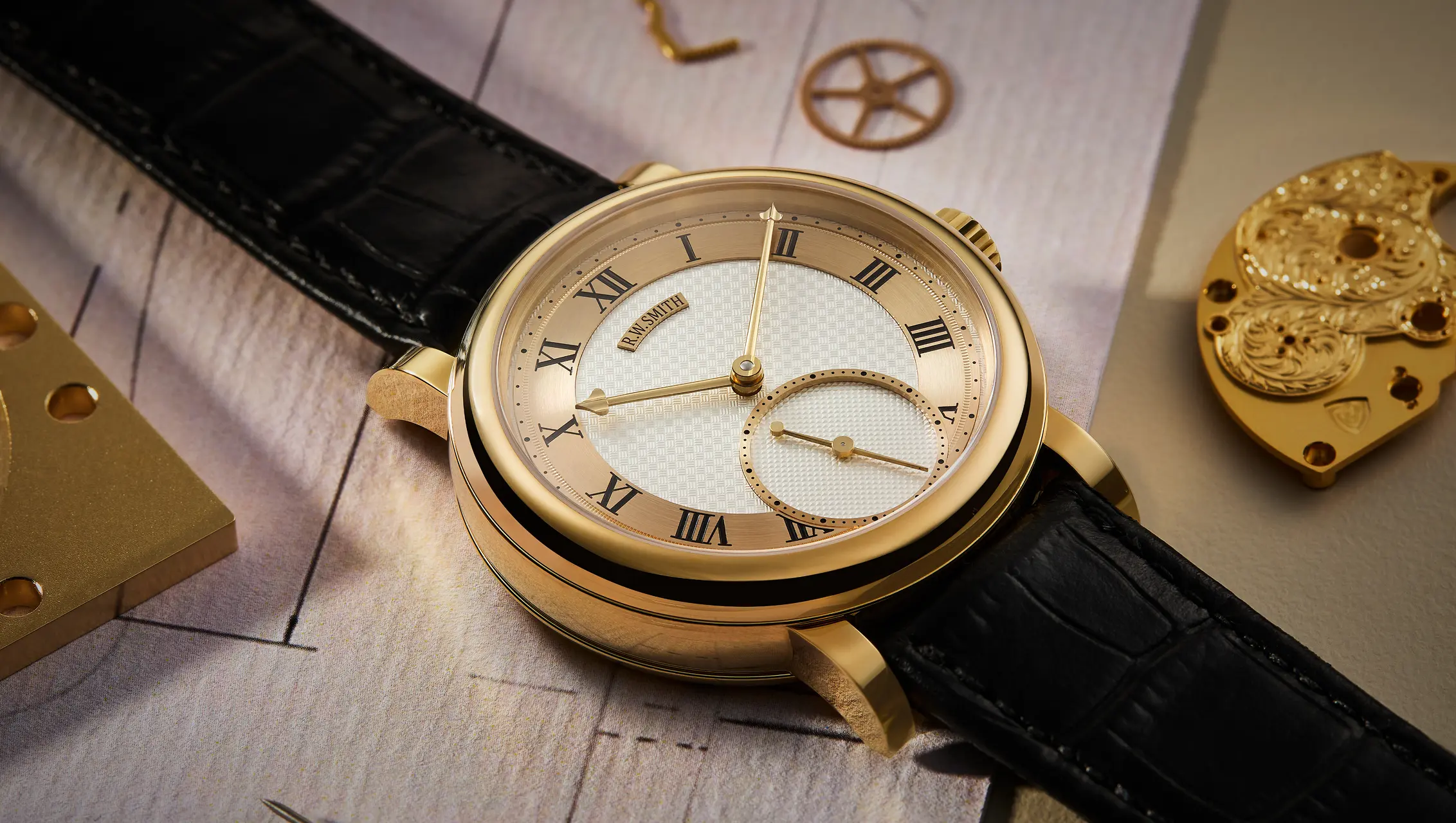
The Series Three was introduced in 2018. This model with a retrograde date complication was inspired by the unique mirrored pair of watches from 2012.
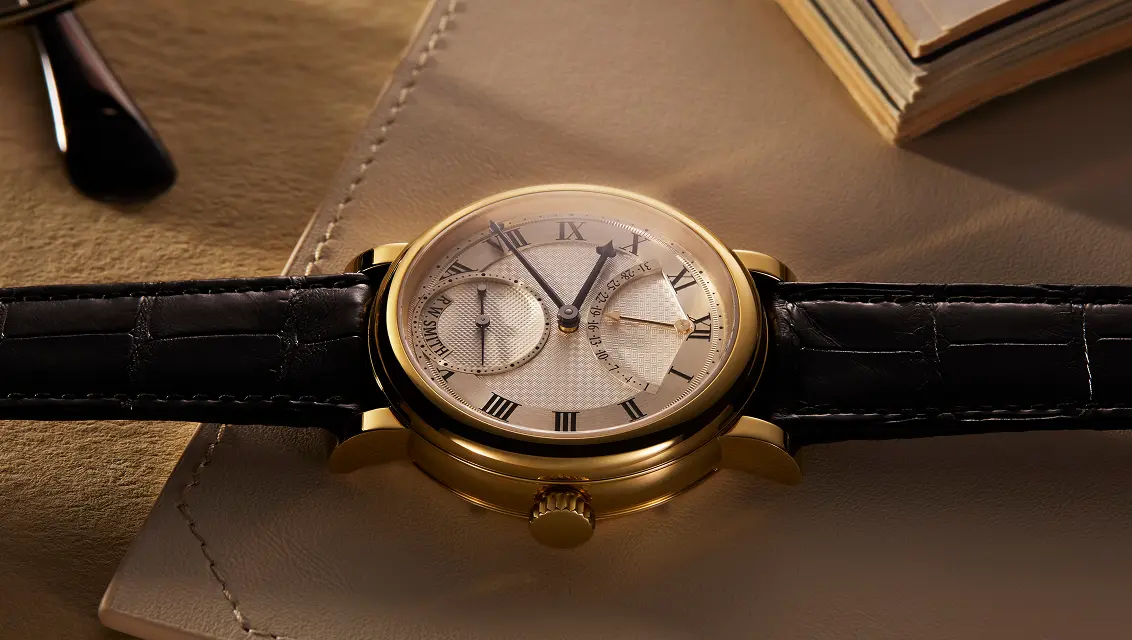
Roger was awarded the Order of the British Empire (OBE) for 'outstanding services to watchmaking'.

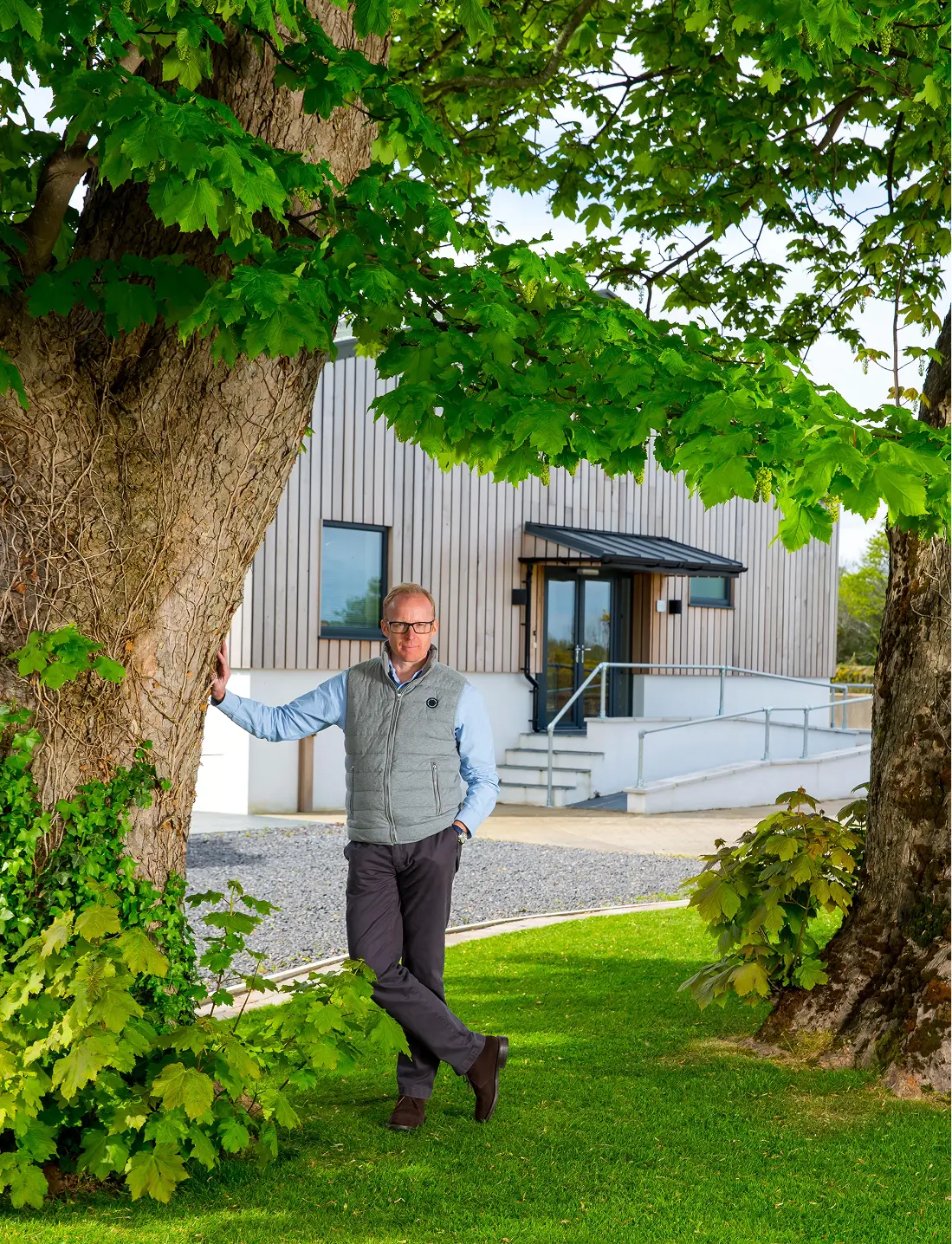
After seventeen years, Roger and his team had outgrown the original workshop in Ballaugh, on the Isle of Man. The business was then relocated to a purpose-built workshop nestled in the Manx countryside, providing the space needed to support its continued growth.
The Mark 2 movement was introduced into the Series Two in 2019.
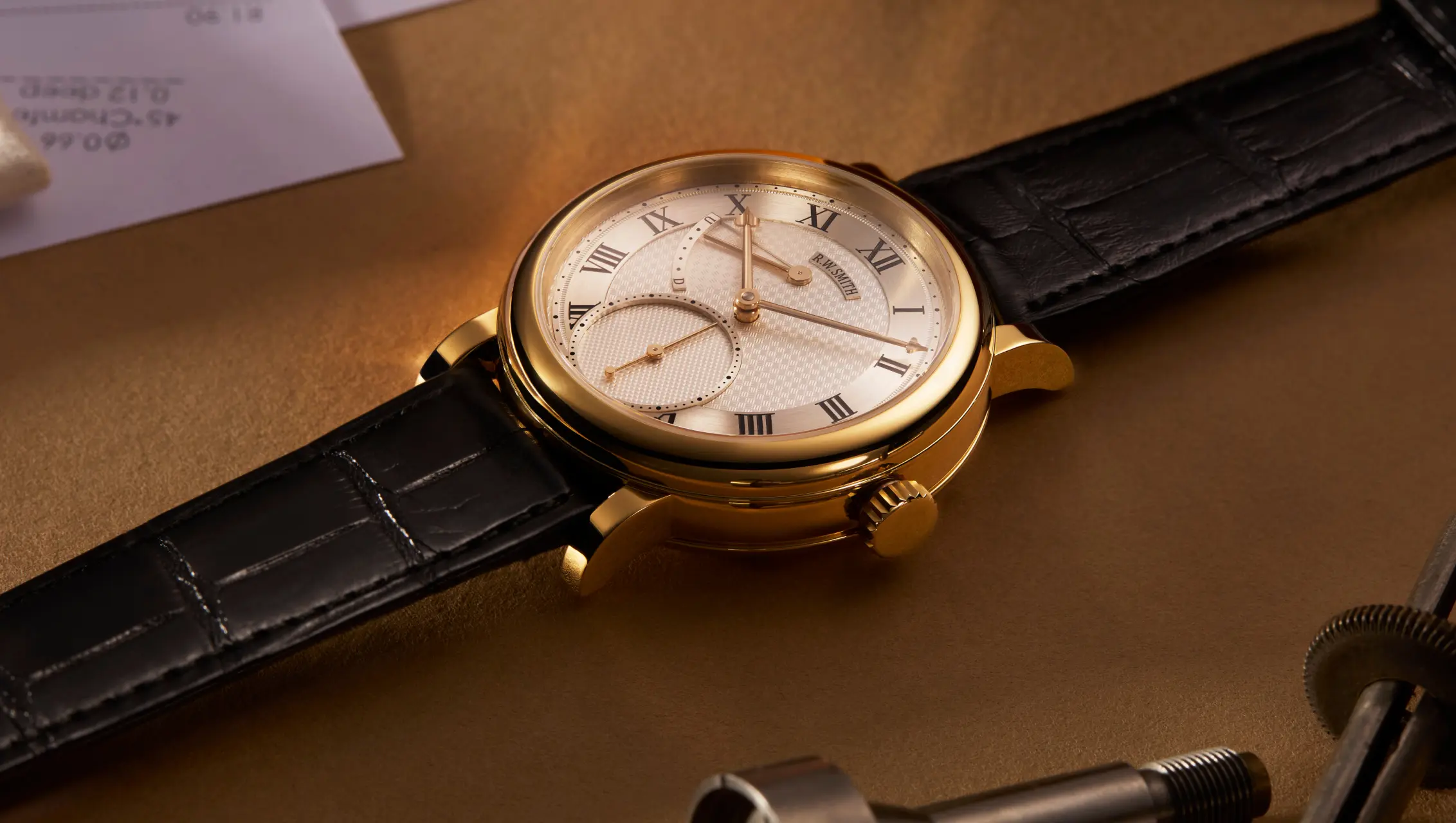
In 2019, with the introduction of the Mark 2 movement, the Series Two Open Dial was renamed the Series Five.
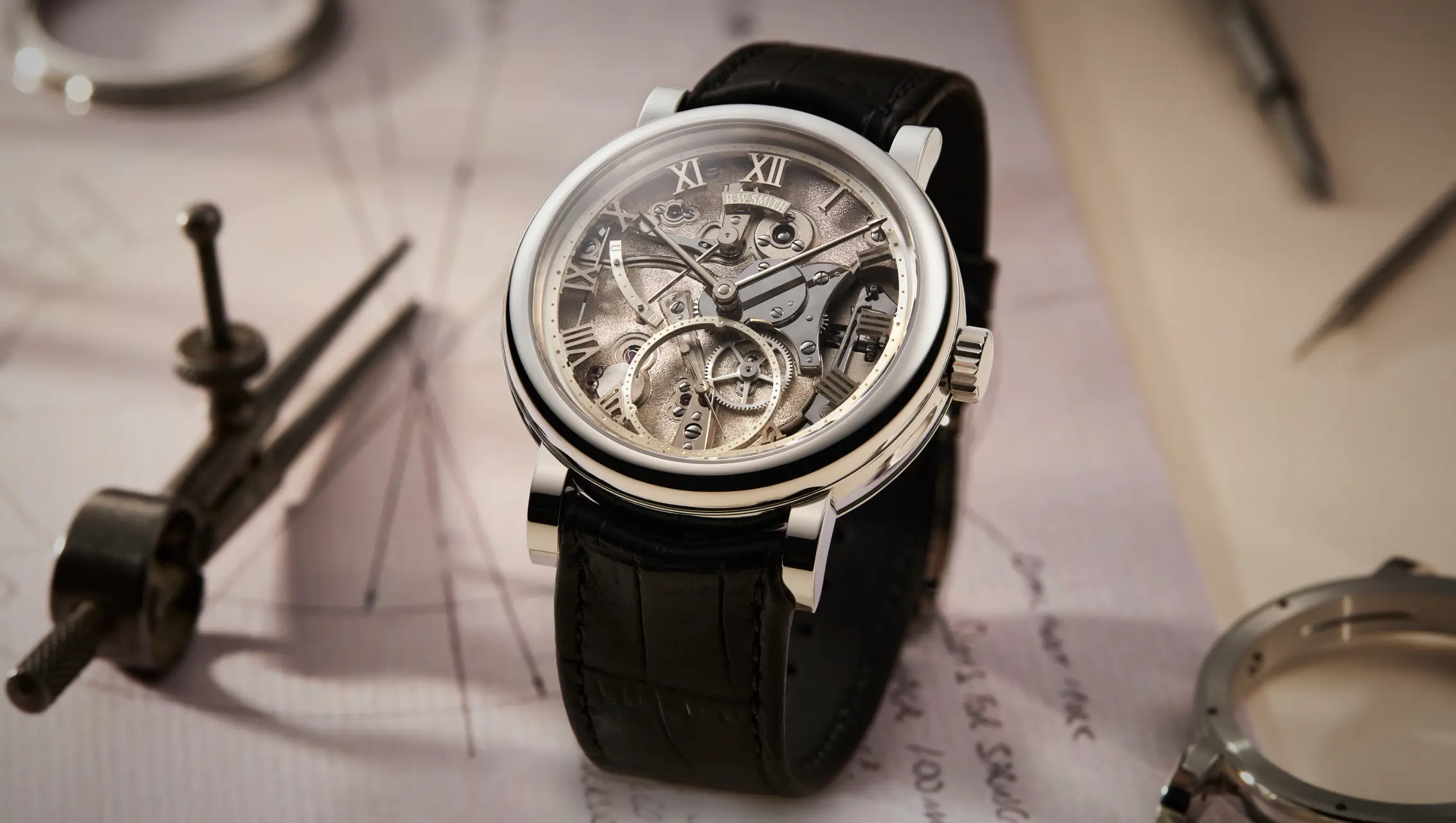
Following a request from a collector to create a watch combining the look of the Series One with the complication of the Series Two, this unique timepiece was created.

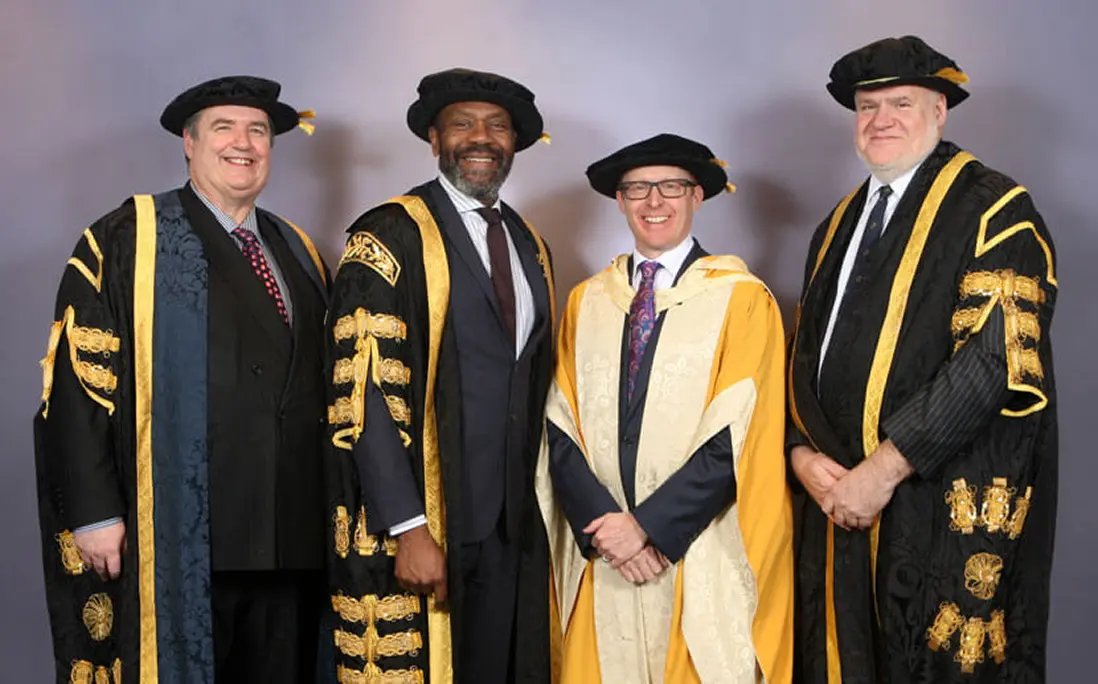
In 2019, Birmingham City University awarded Roger an honorary doctorate in recognition of his advancements in horology.
First developed in 2014, the Series Four features an instantaneous triple calendar complication with moon phase.
To address the legibility issues of a traditional triple calendar display, Roger designed the travelling date aperture. This concept was later adopted by several major brands. The first Series Four was the 100th R.W. Smith watch.

In 2020, Roger Smith and Mike France co-founded the Alliance of British Watch and Clock Makers. The aim of the Alliance is to represent the interests of British watch and clock makers, nurture talent and promote the sector both domestically and internationally.
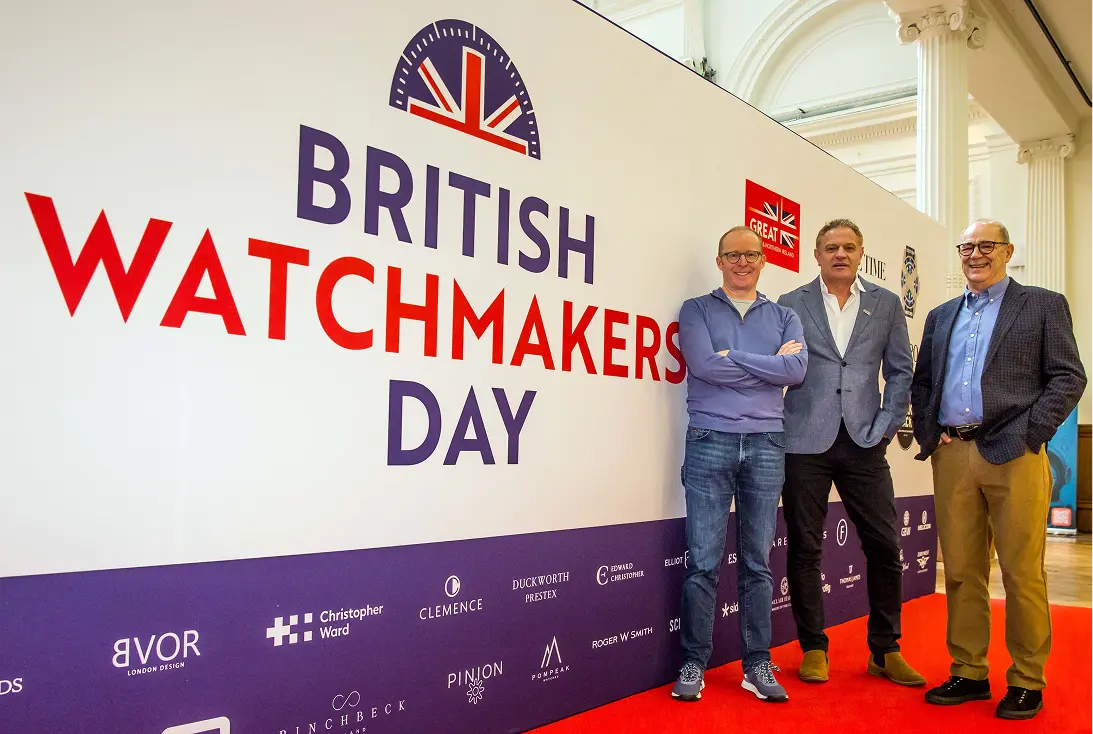
In 2020, the Isle of Man Post Office issued a set of commemorative stamps featuring three master watchmakers with strong connections to the island – John Harwood, George Daniels and Roger Smith.
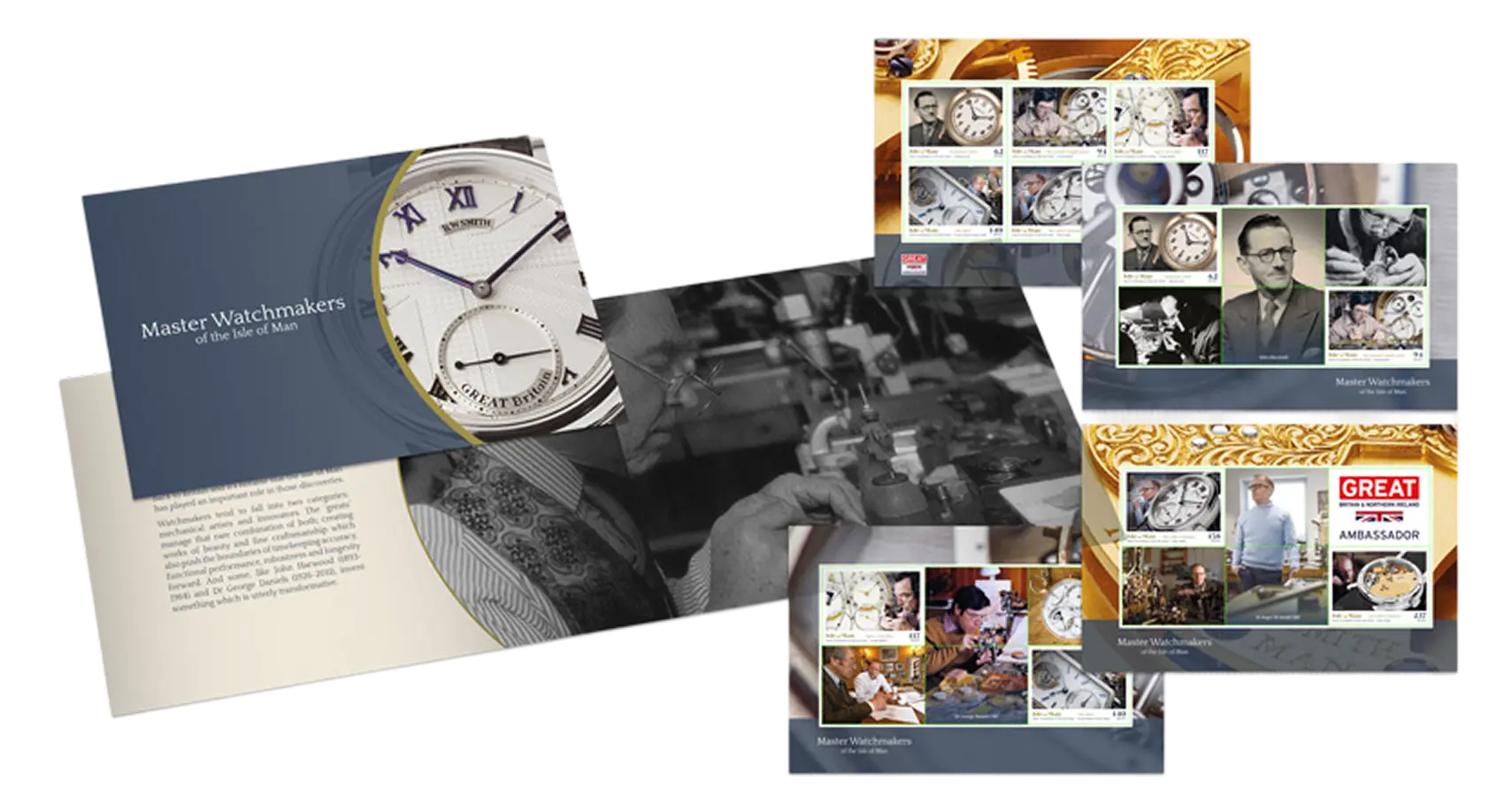
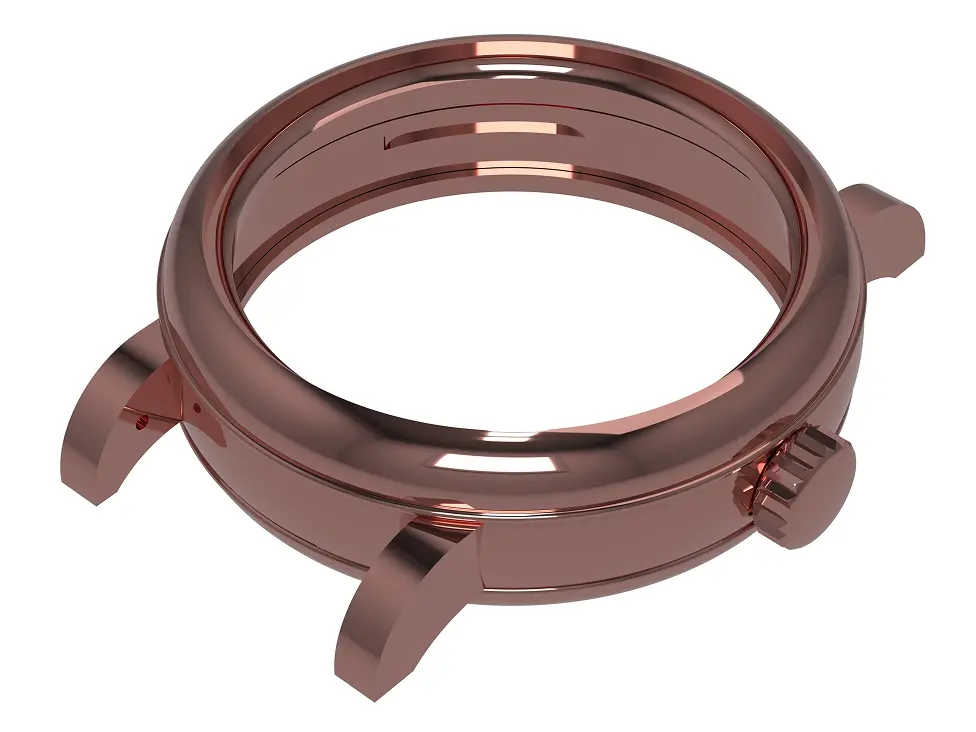
After a decade of exclusively using the 40mm case, a newly designed 38mm case was introduced for the Series One, Two and Five watches.
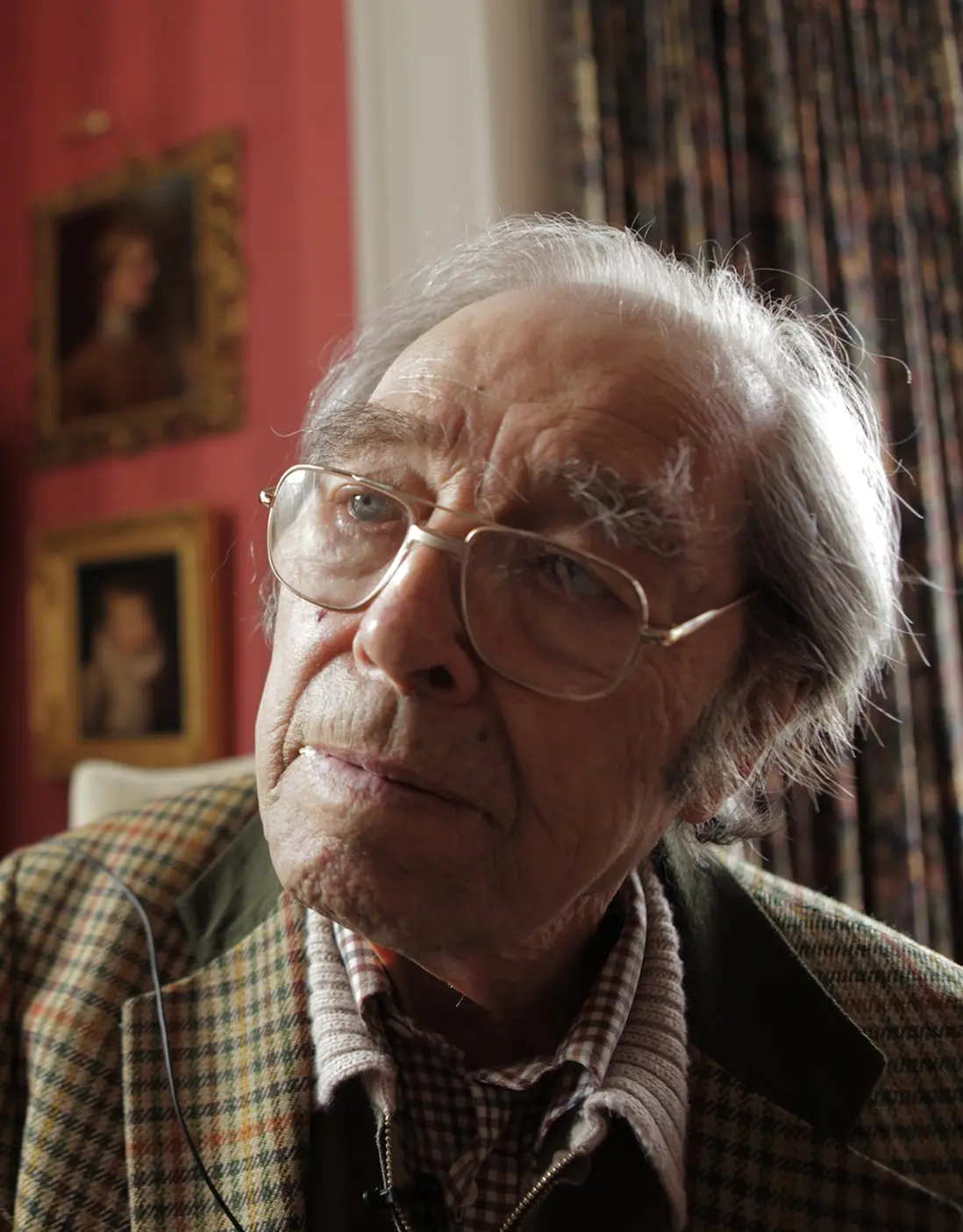
George Daniels was passionate about education and his legacy lives on through The George Daniels Educational Trust, established following his passing on 21 October 2011. The Trust stands as a lasting tribute to a remarkable man.
It was Dr. Daniels’ wish to support students who demonstrate initiative and merit but lack the necessary resources to realise their ambitions, helping them advance their education and further the development of Engineering, Horology, Medicine and Building or Construction disciplines. For further information, visit https://www.danielstrust.org/
At a Phillips auction in New York, Roger’s cornerstone Pocket Watch No. 2 achieved a record $4.9 million, setting an outright record for any British watch.
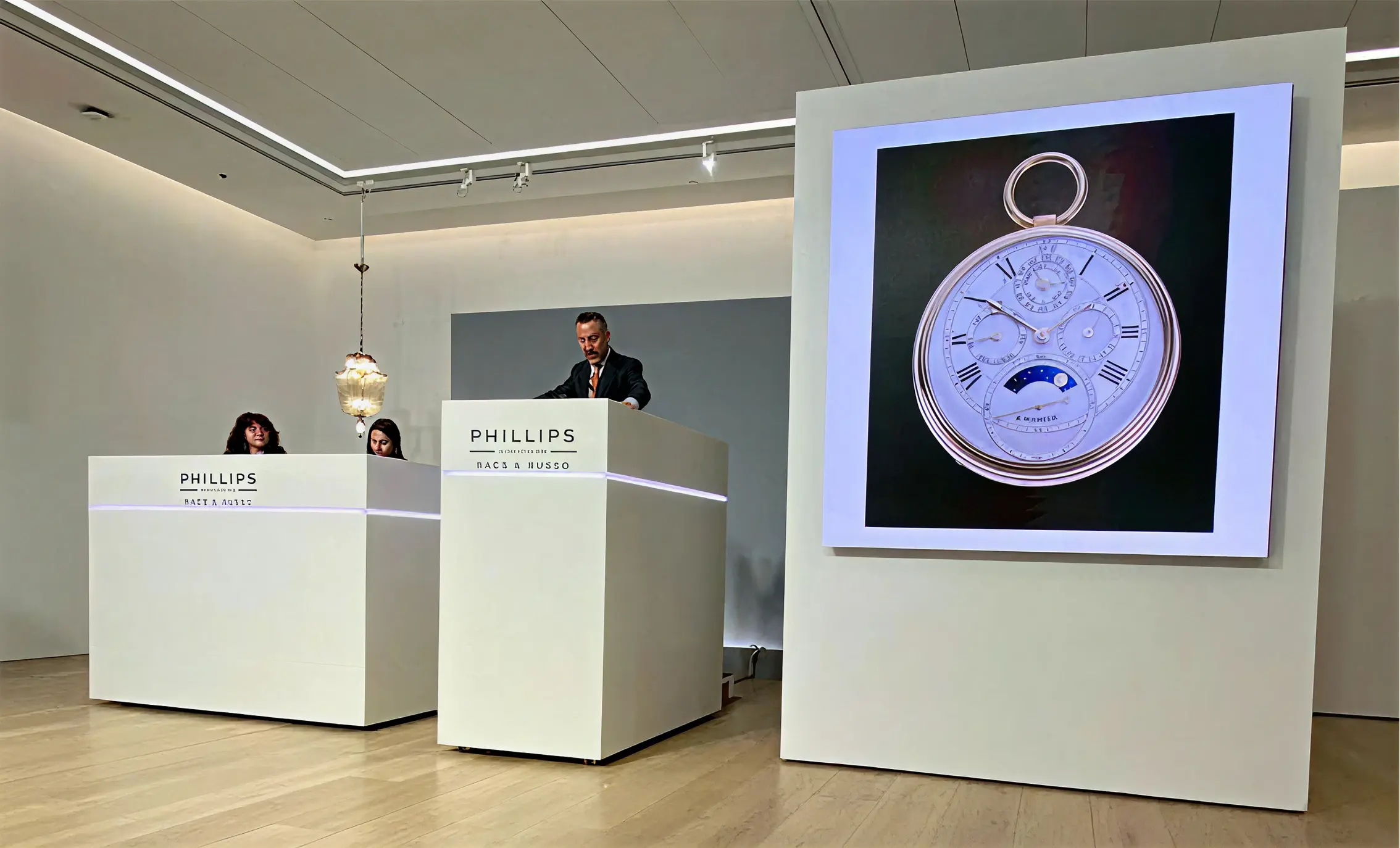
The Series Three Open Dial was introduced in 2023, revealing the retrograde calendar mechanism.
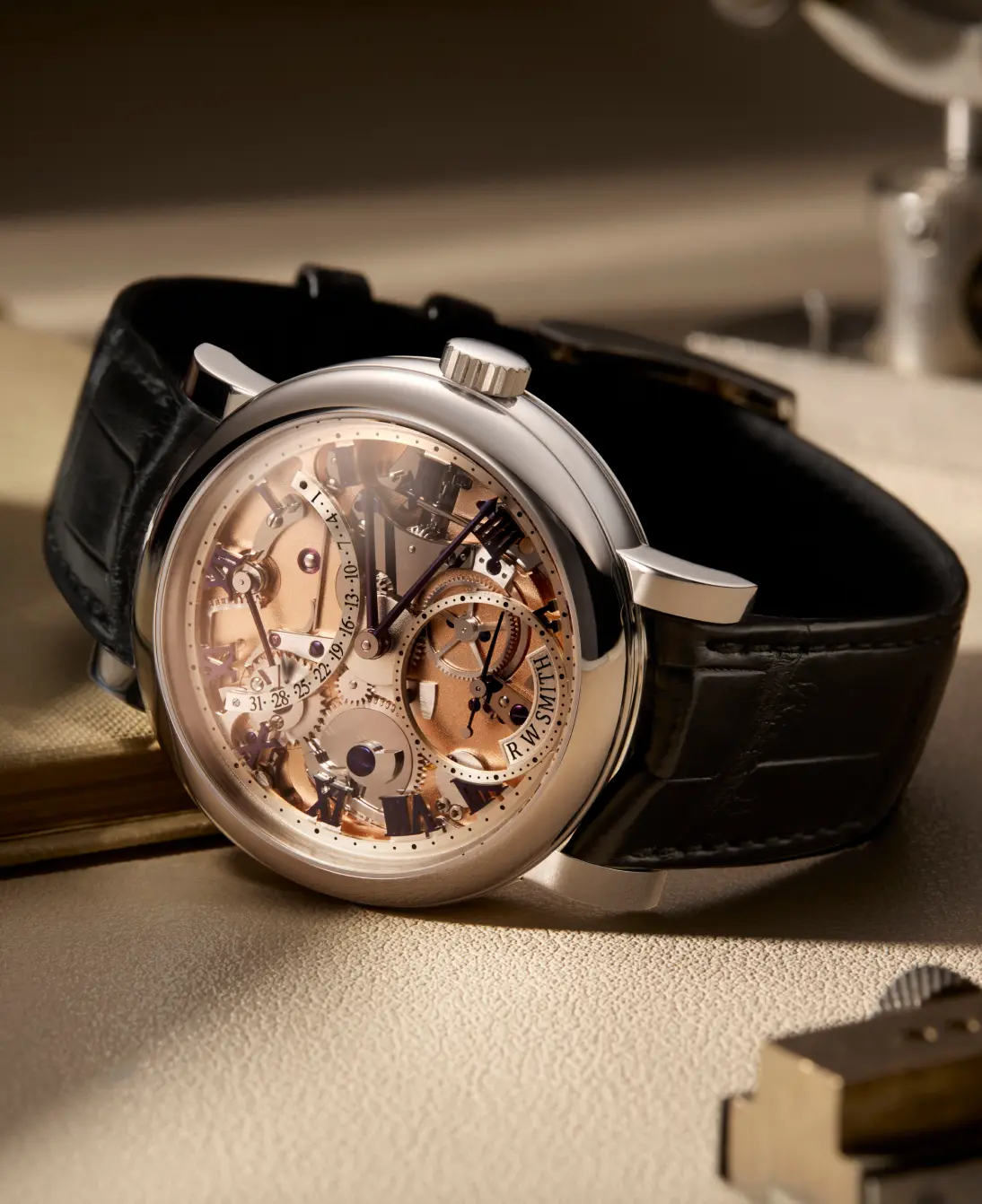
In 2025, the last Daniels Anniversary wristwatch was completed, marking sixteen years since George and Roger began the project. This was a significant moment for Roger, as the Daniels Anniversary was the final watch to have been designed and created during George’s lifetime. Having been entrusted by George with the project and later bequeathed the Daniels workshop collection, this moment marked the end of an era. In total, there are 35 pieces in yellow gold, 4 in platinum, 4 in white gold and last to be completed, 4 in red gold.
